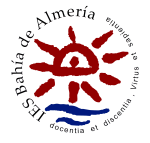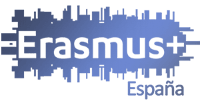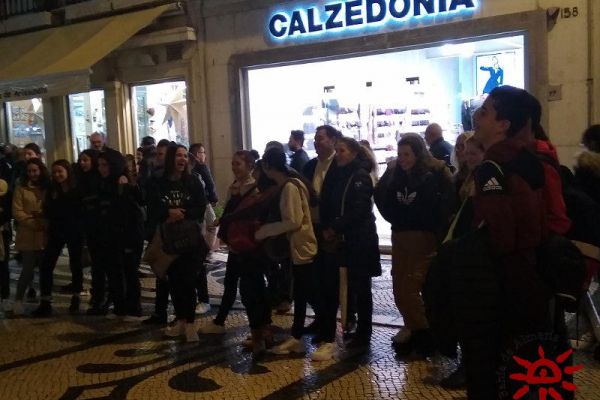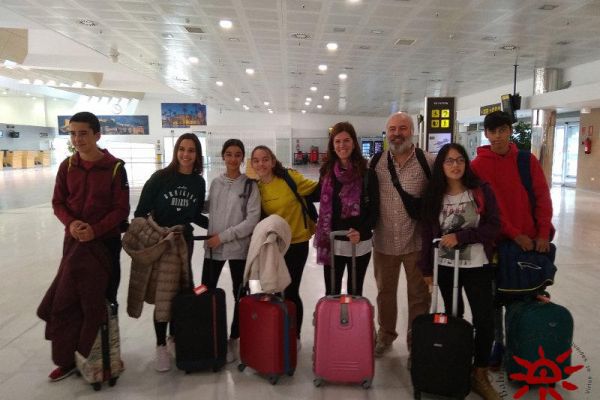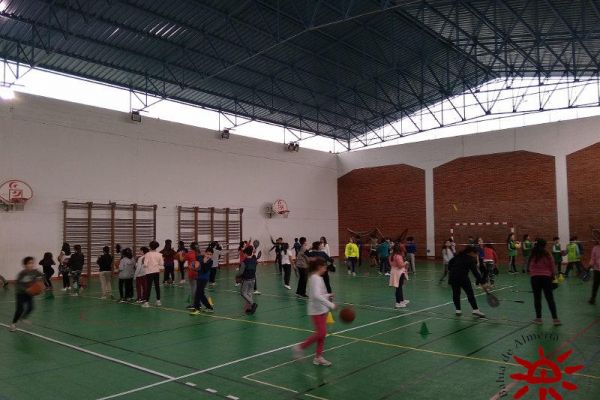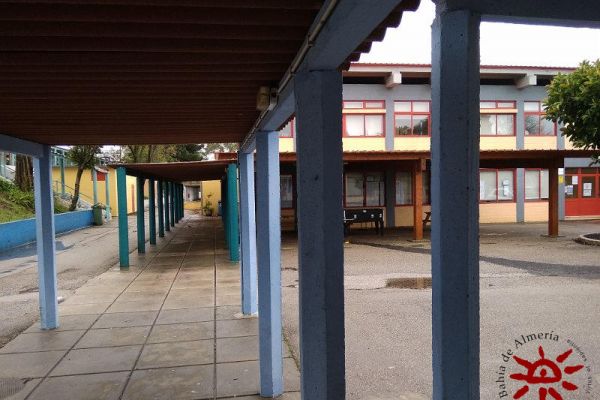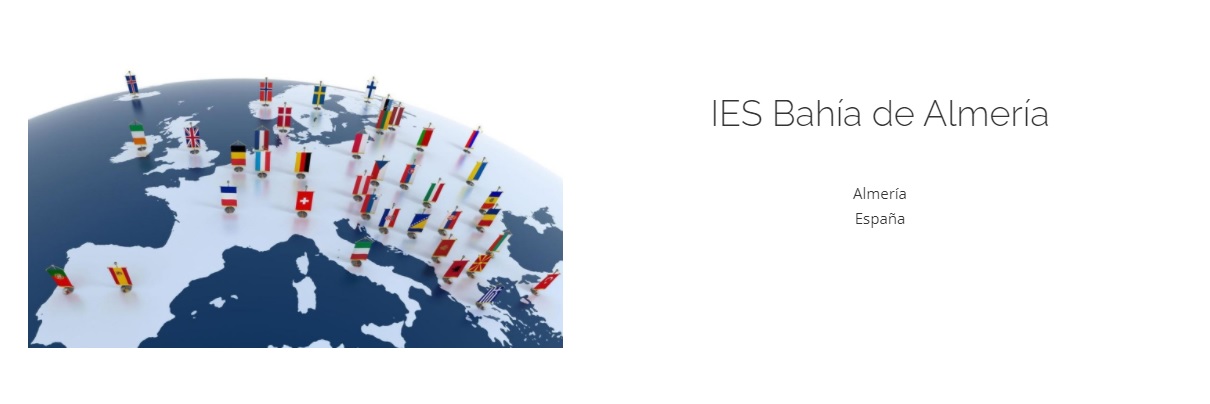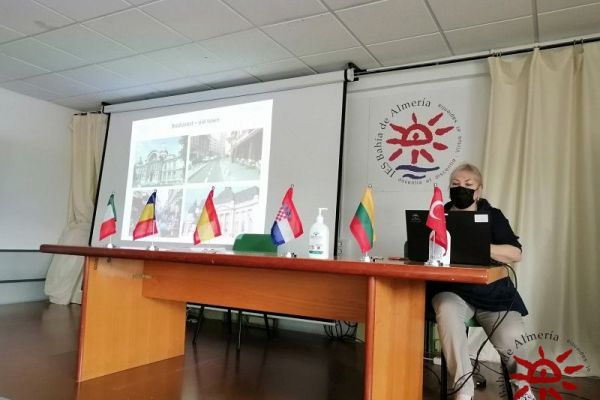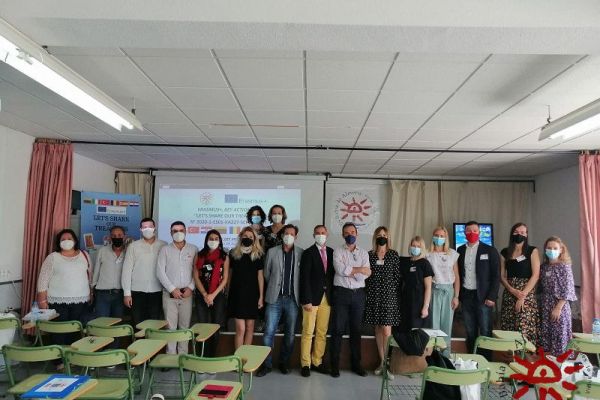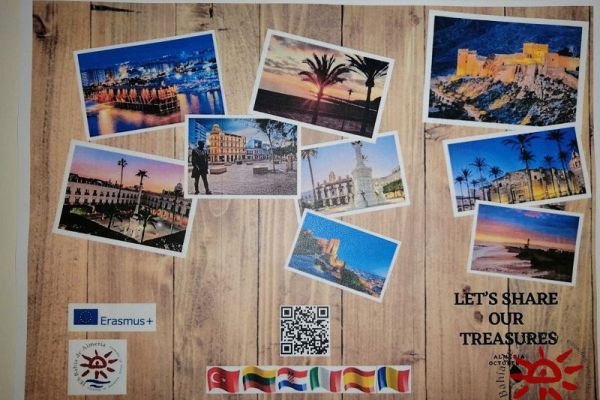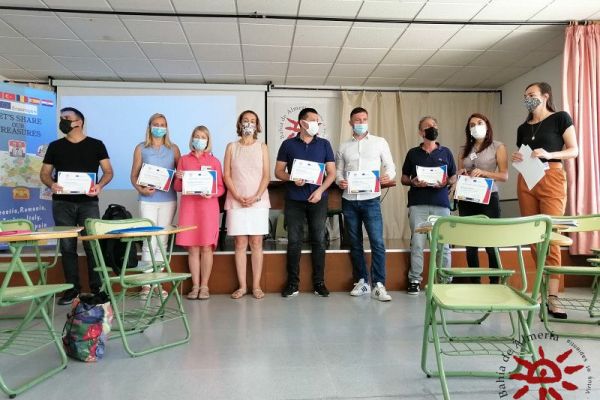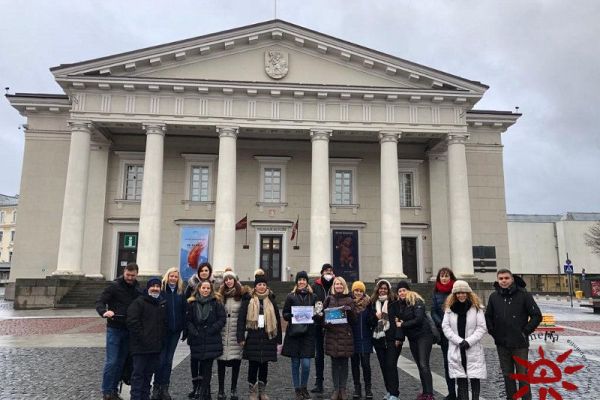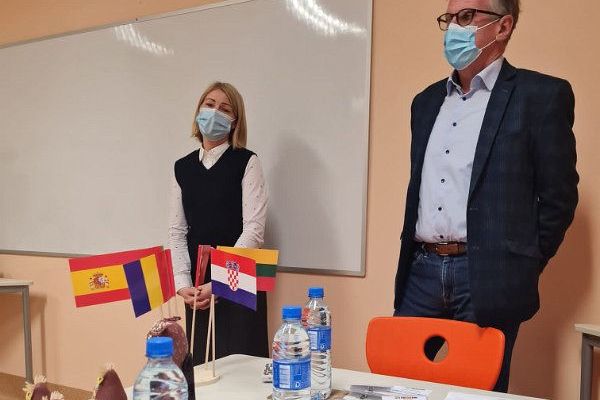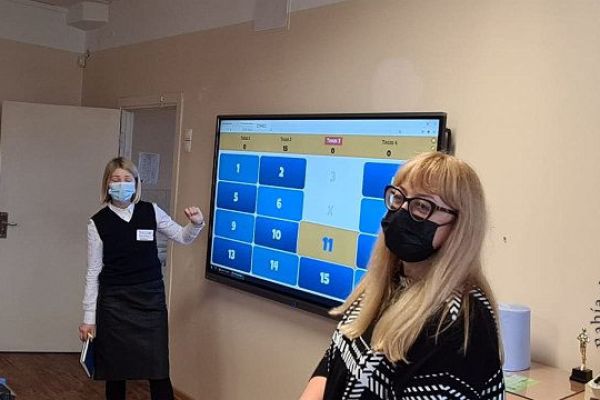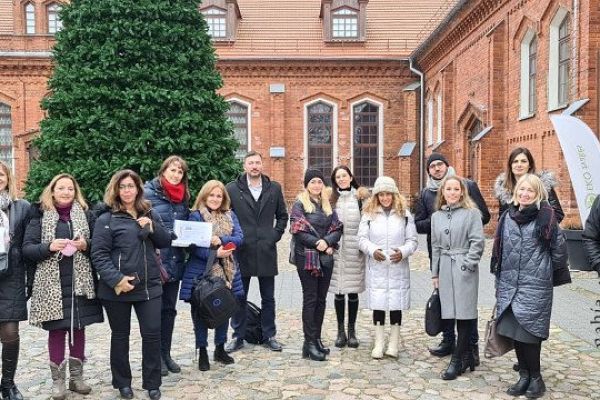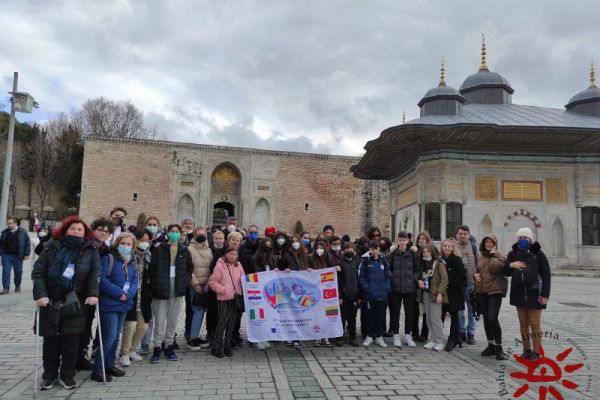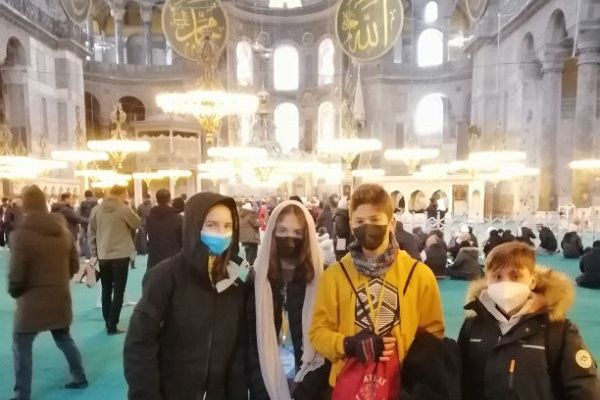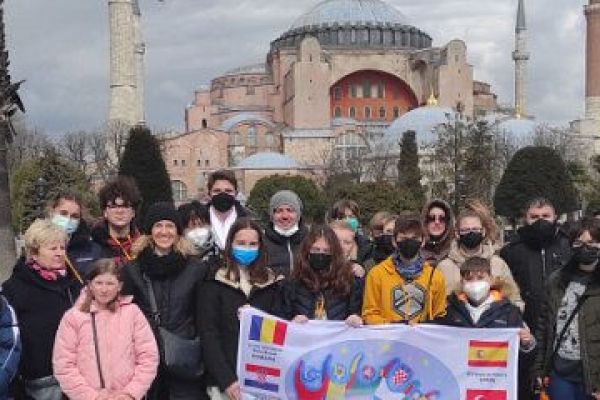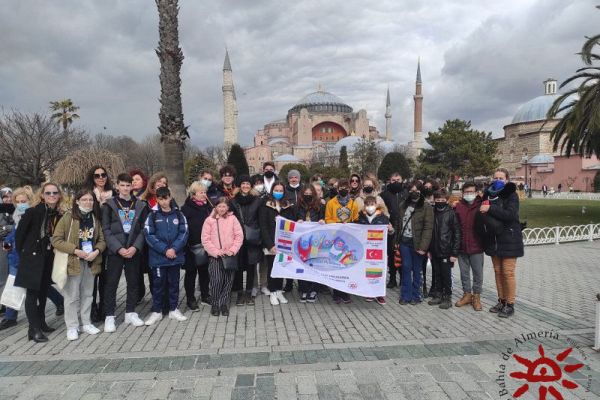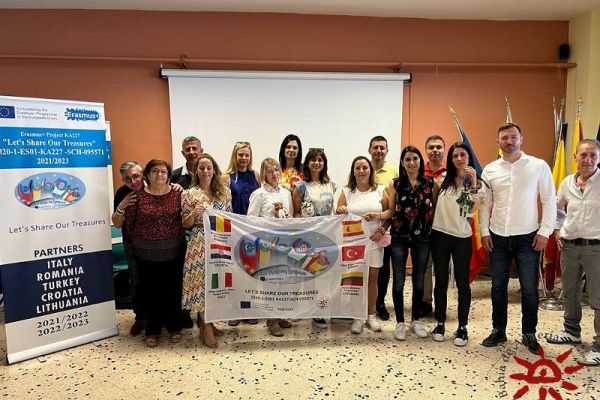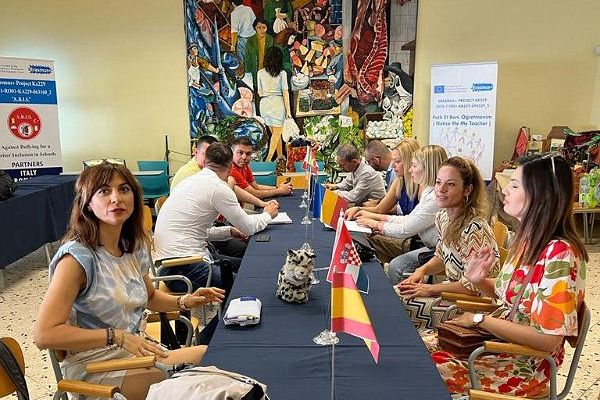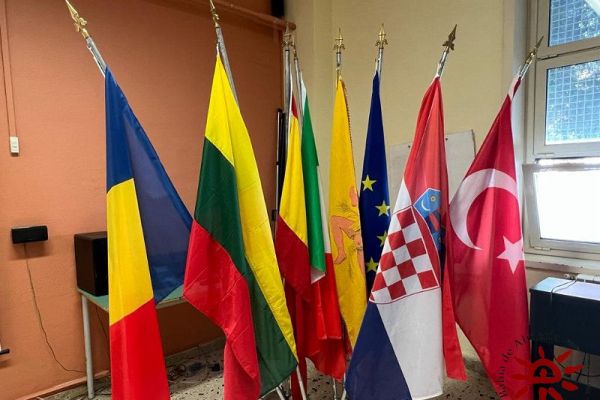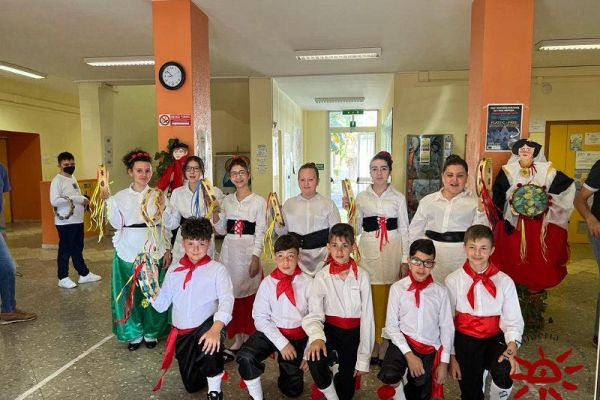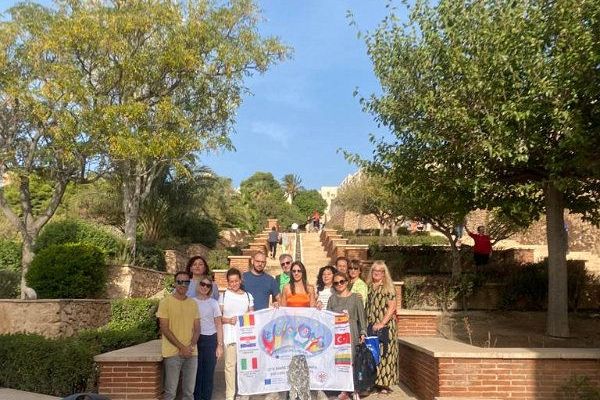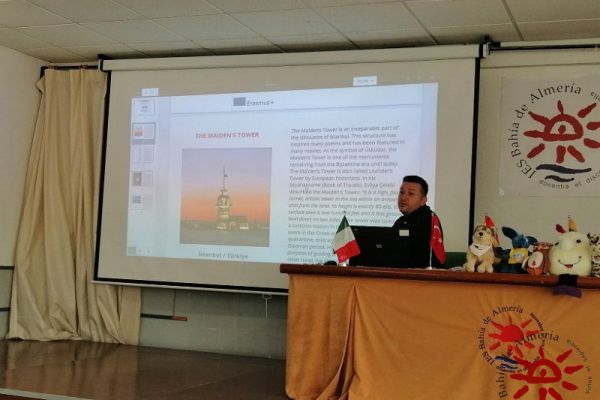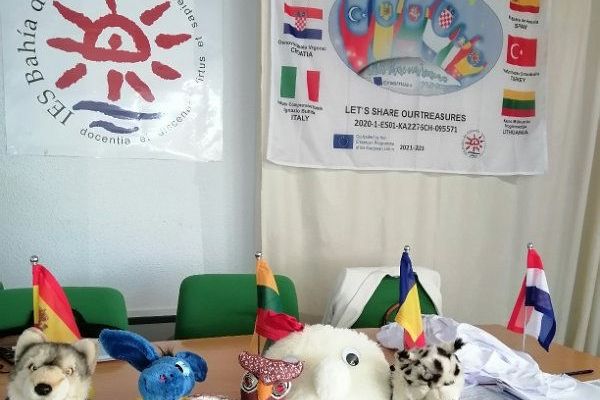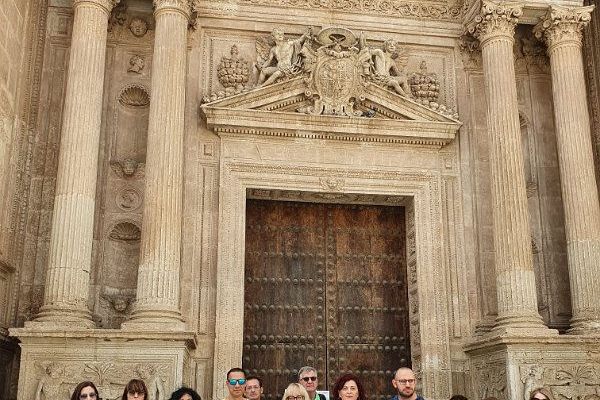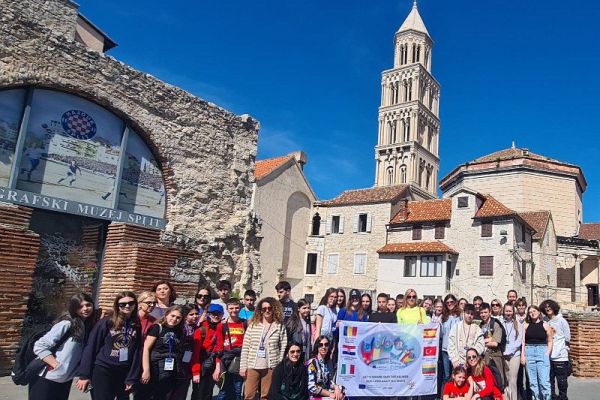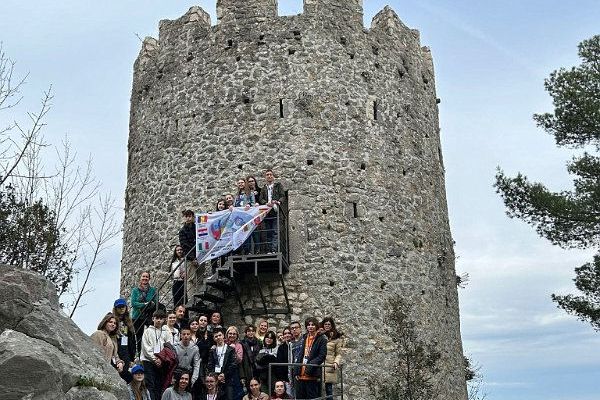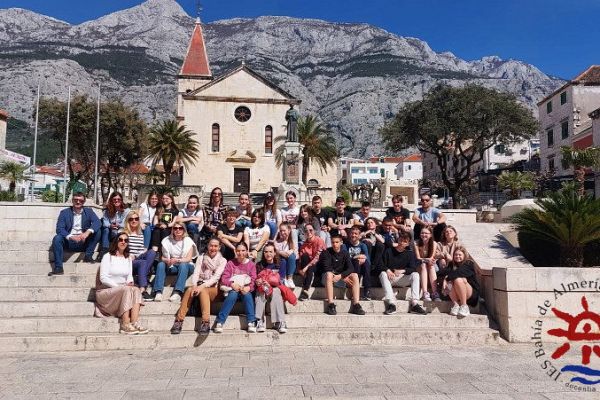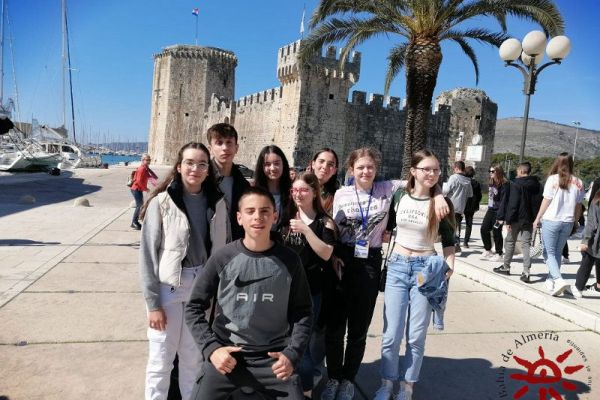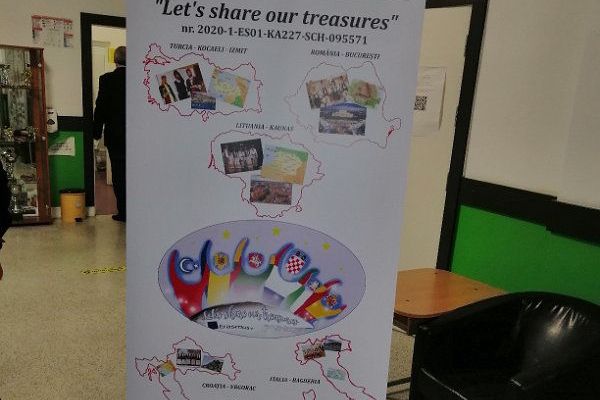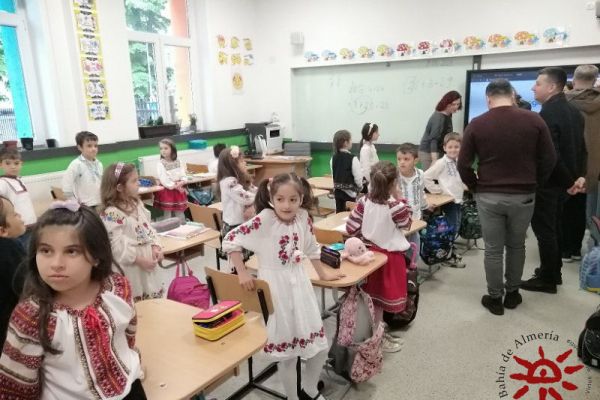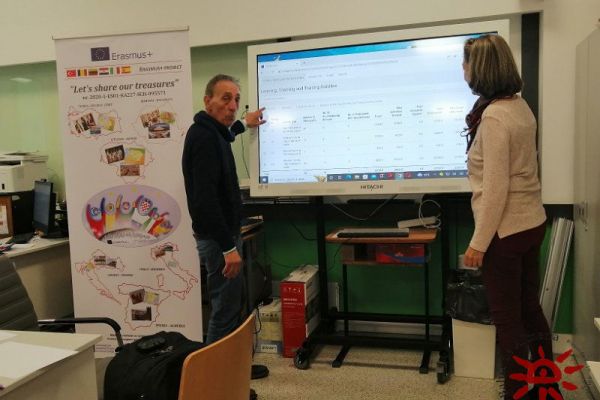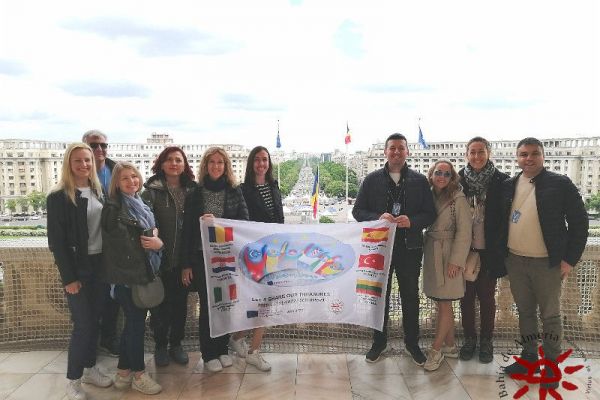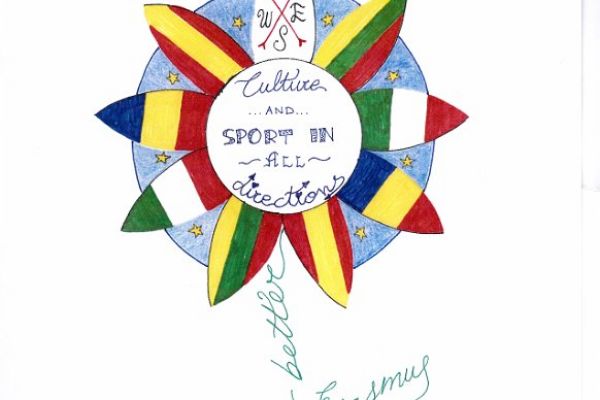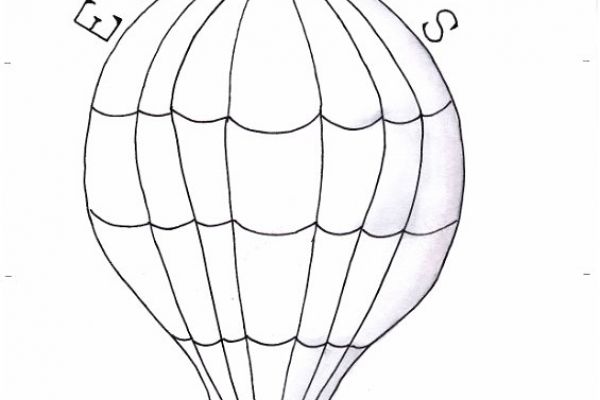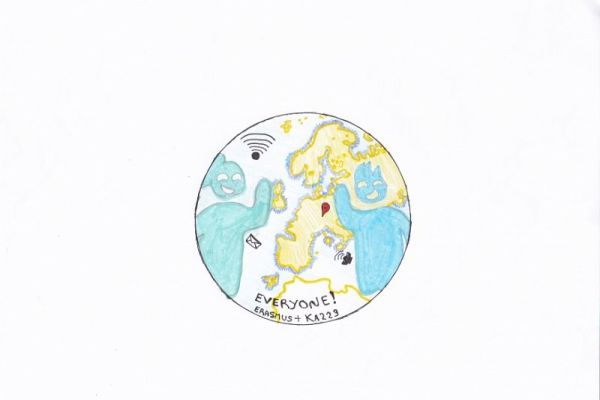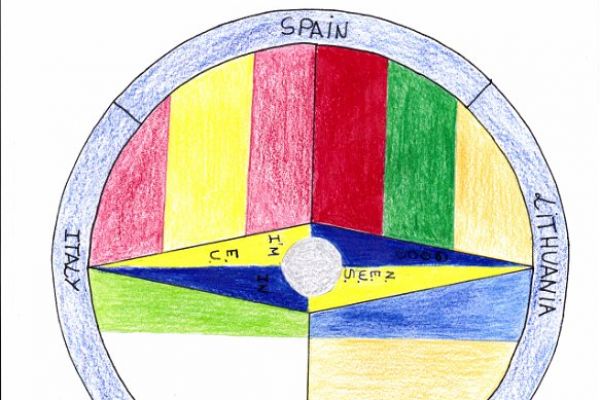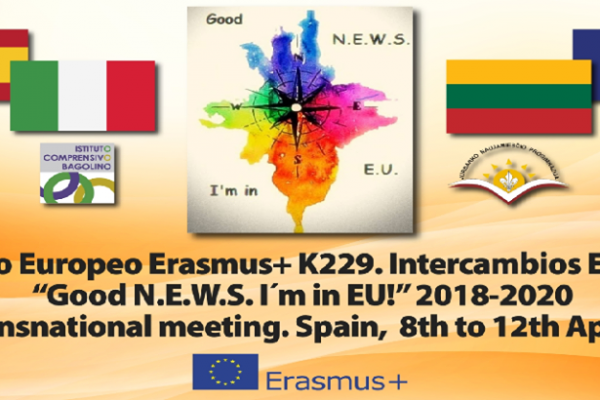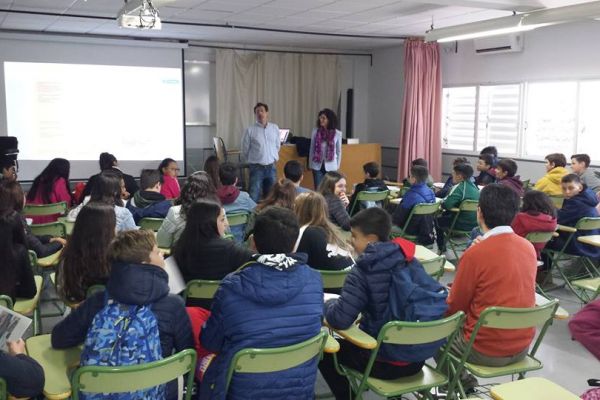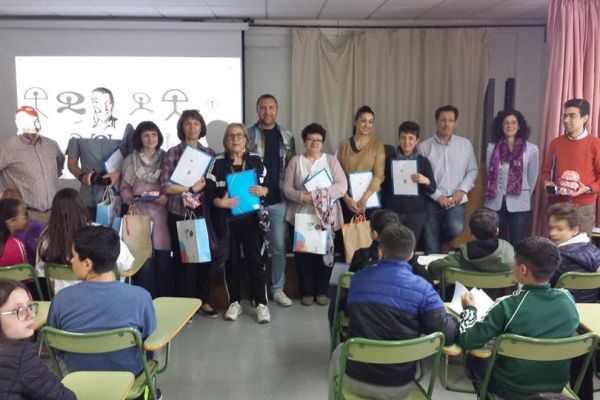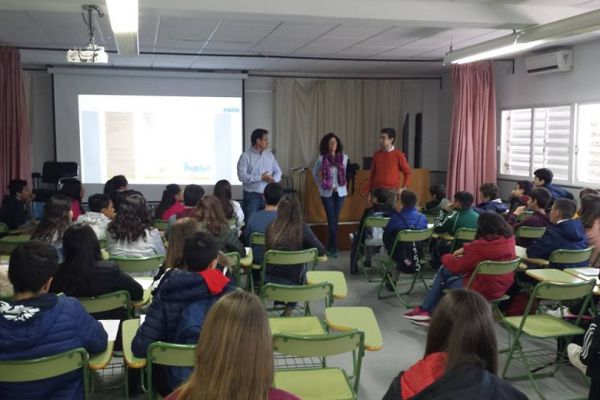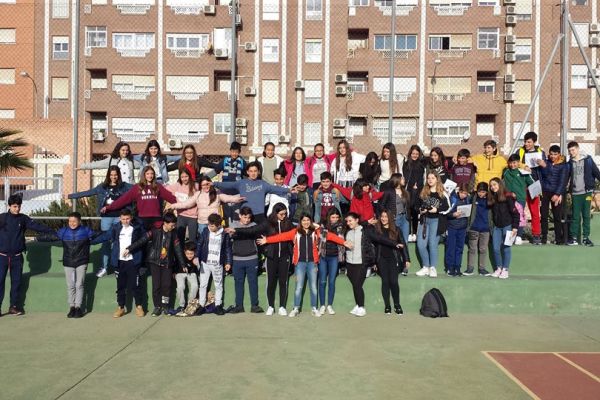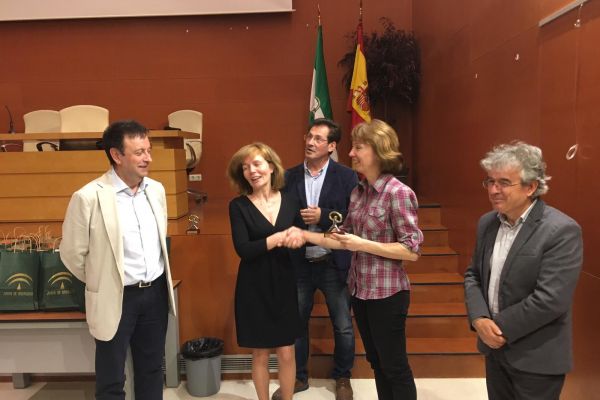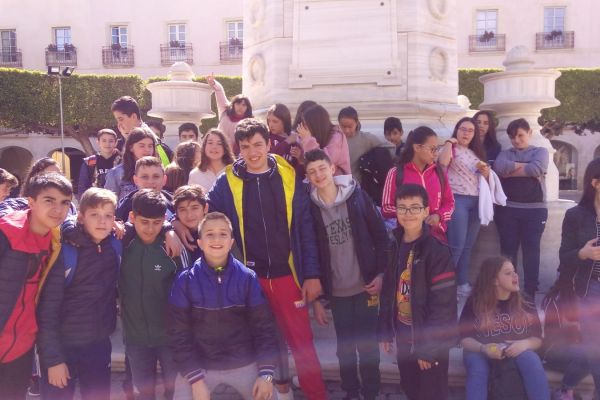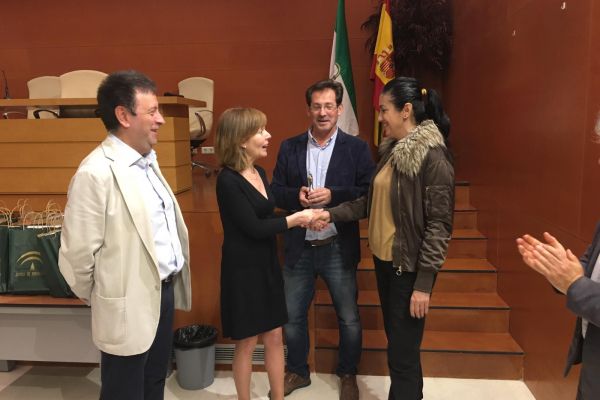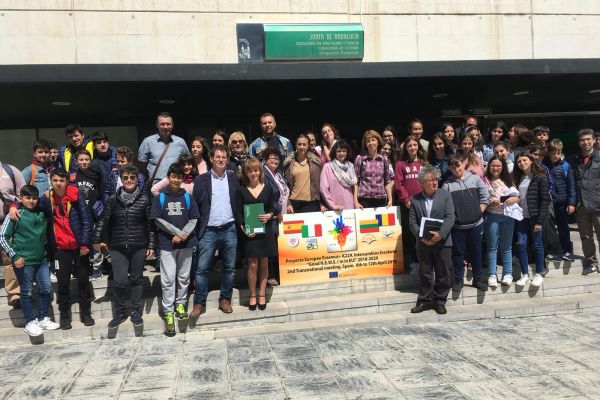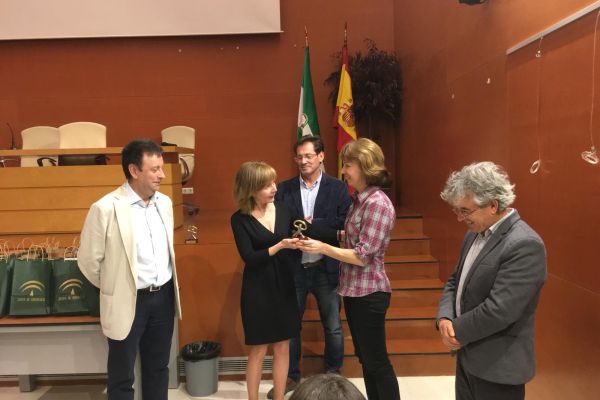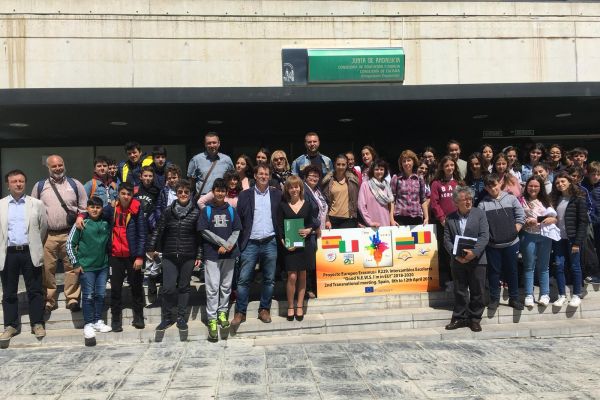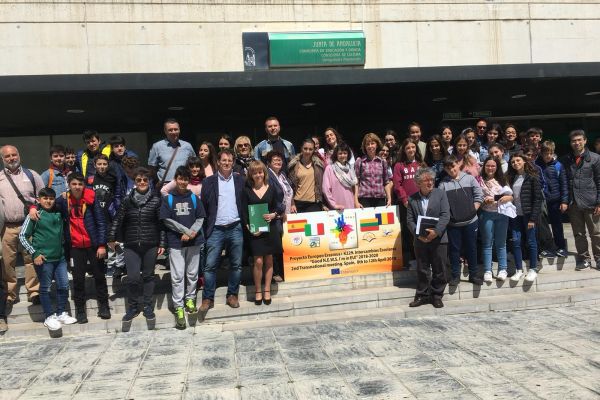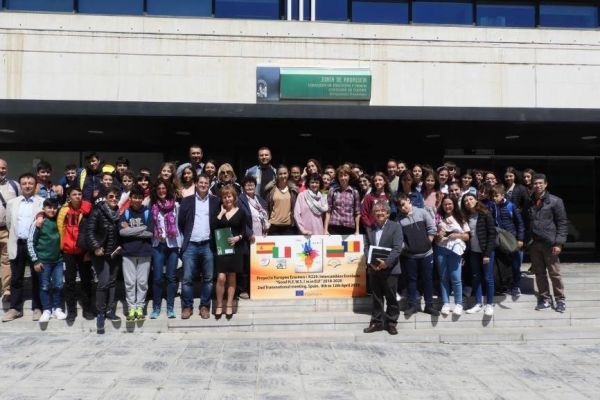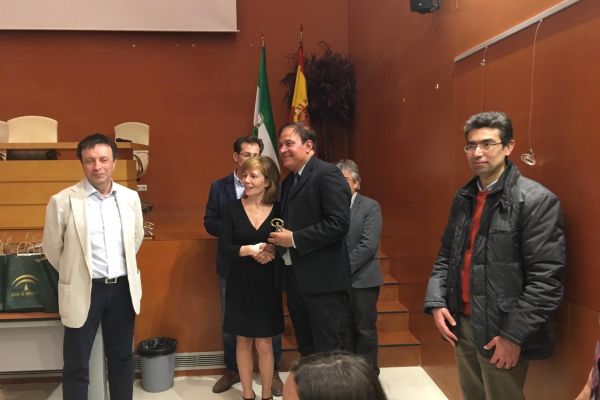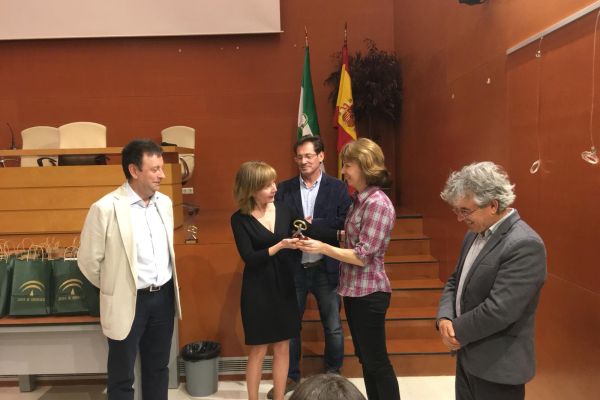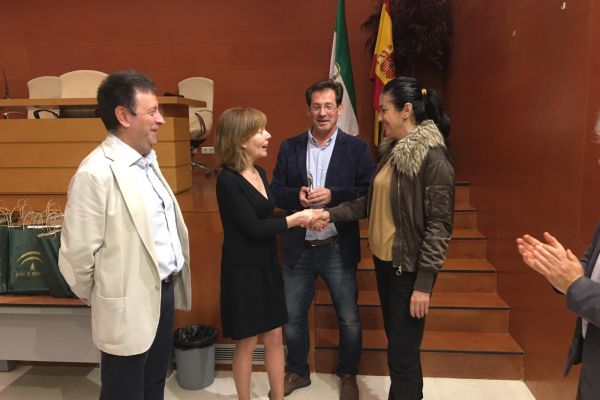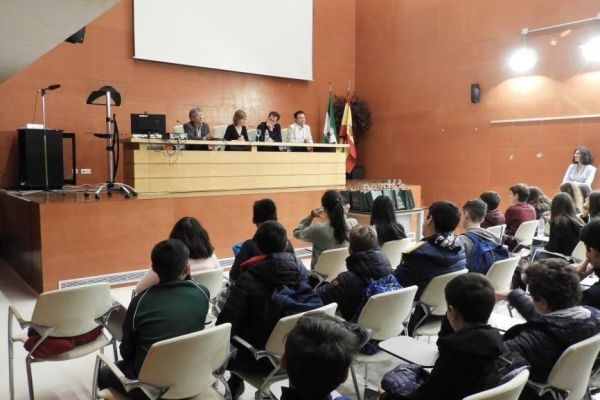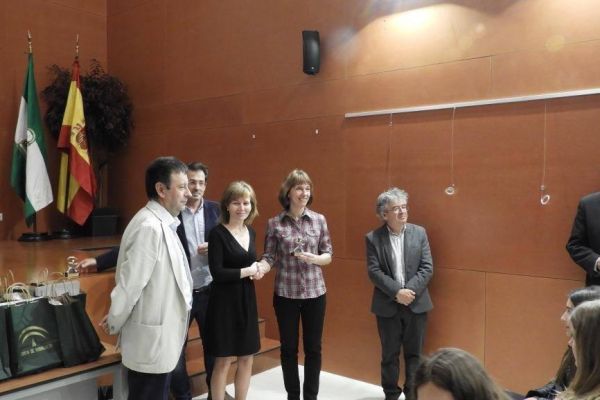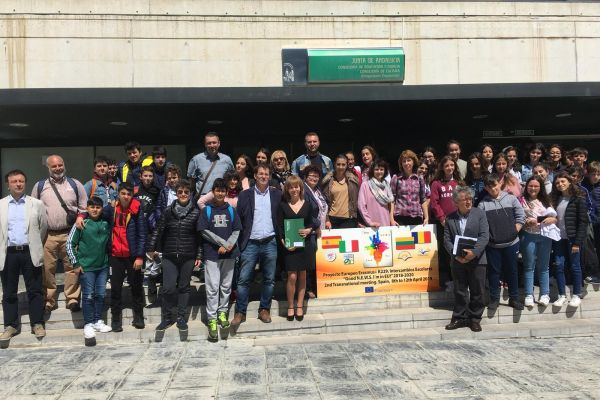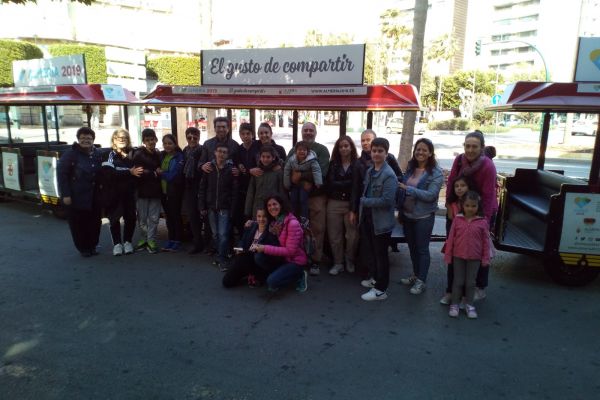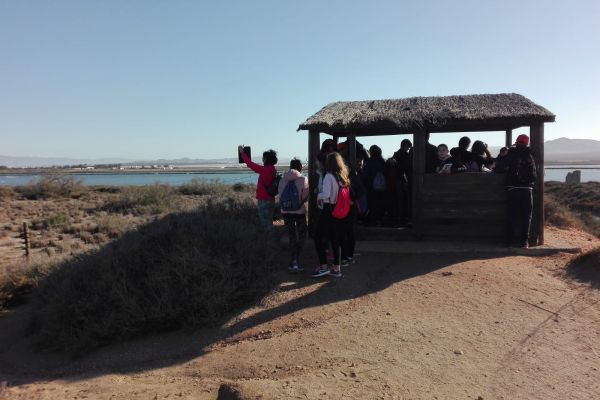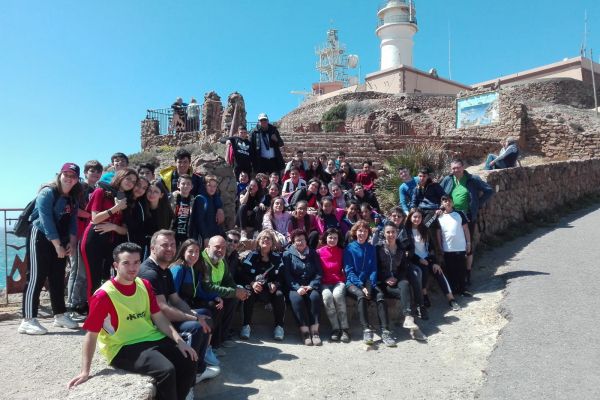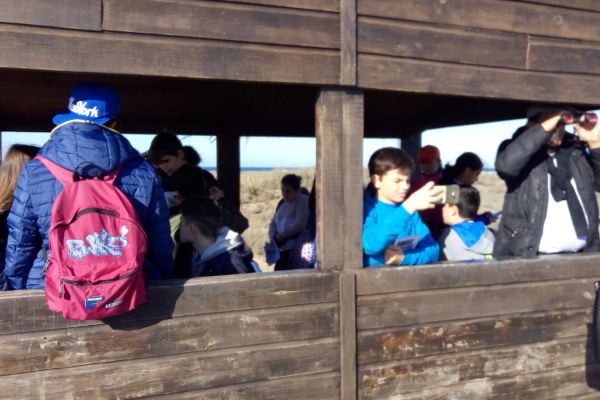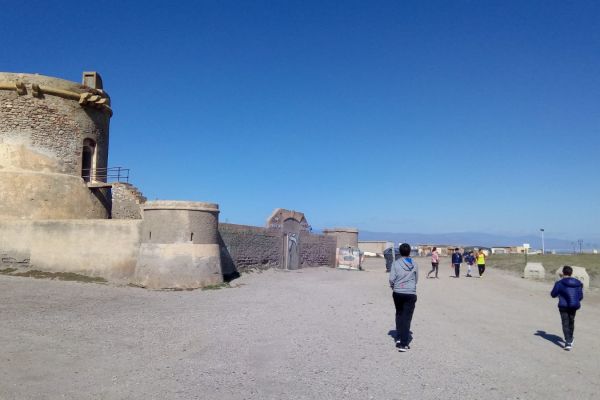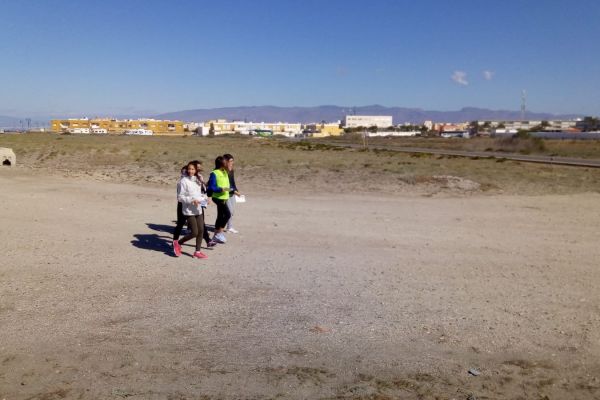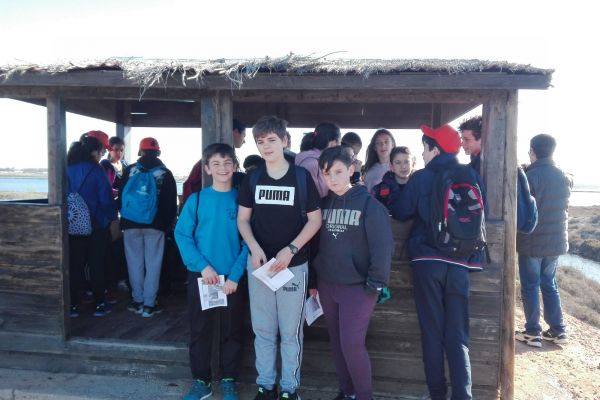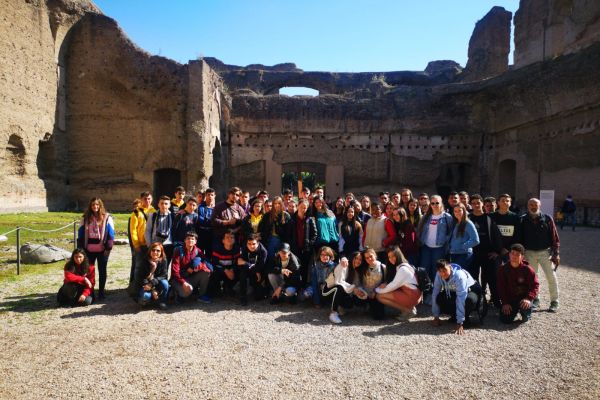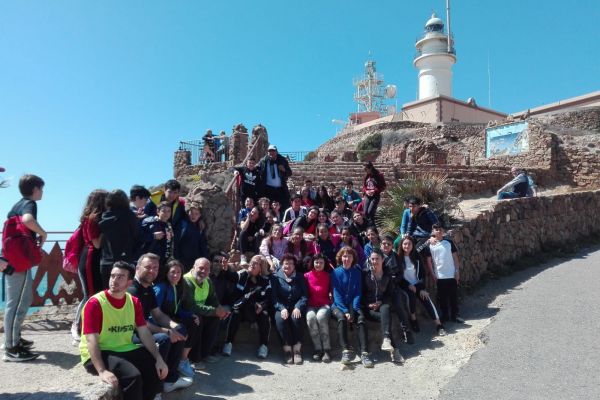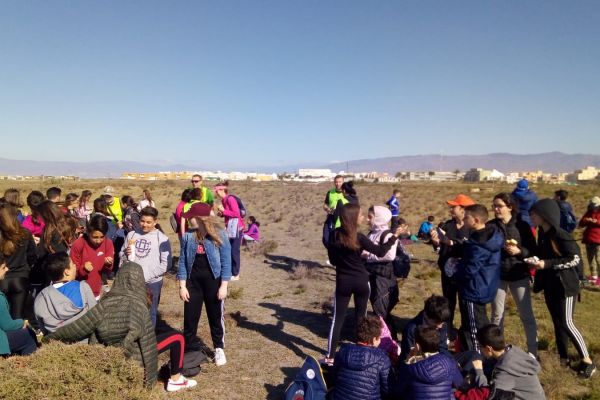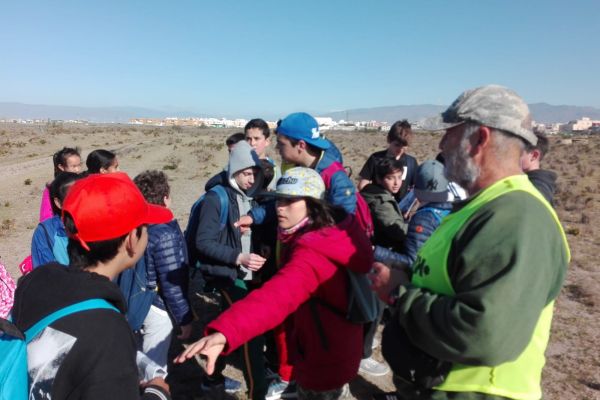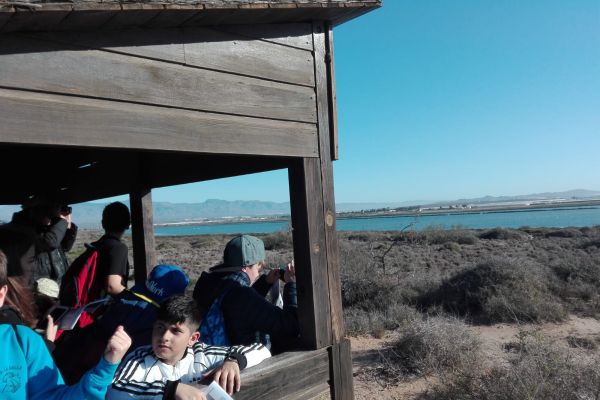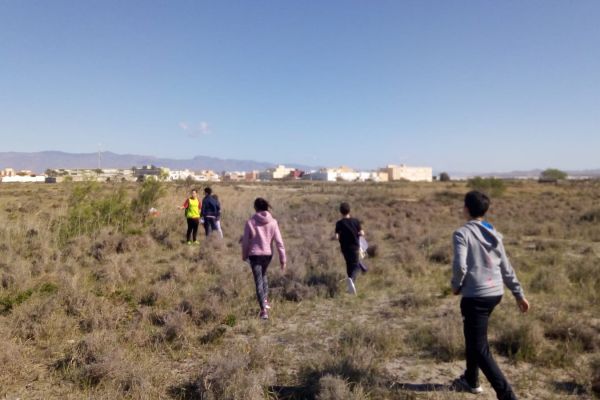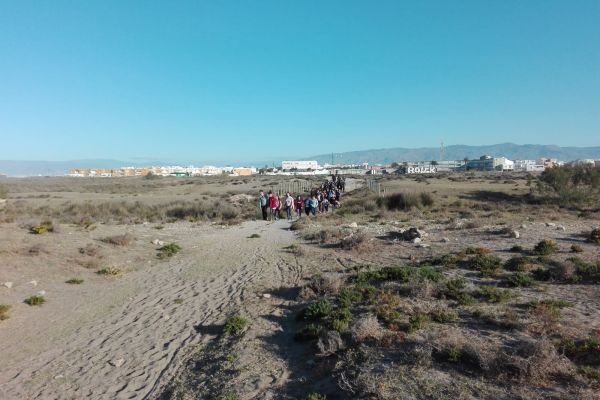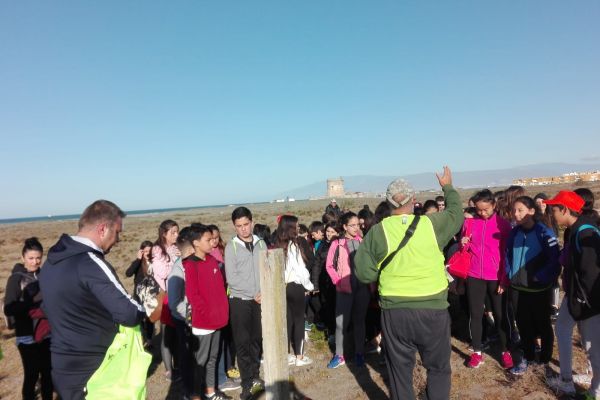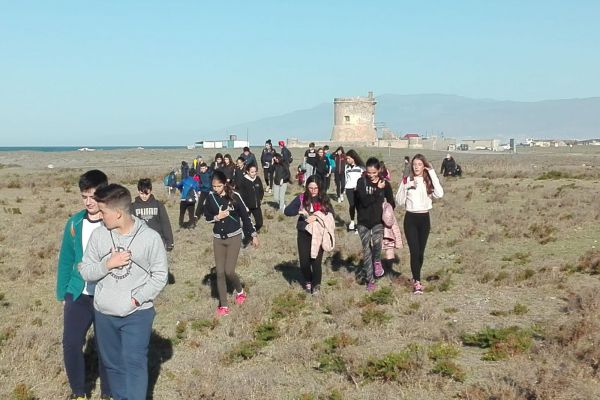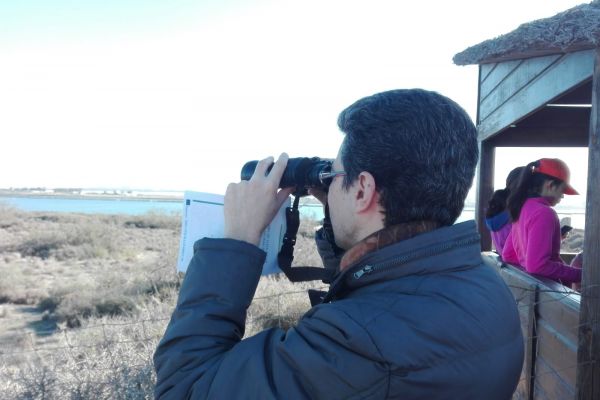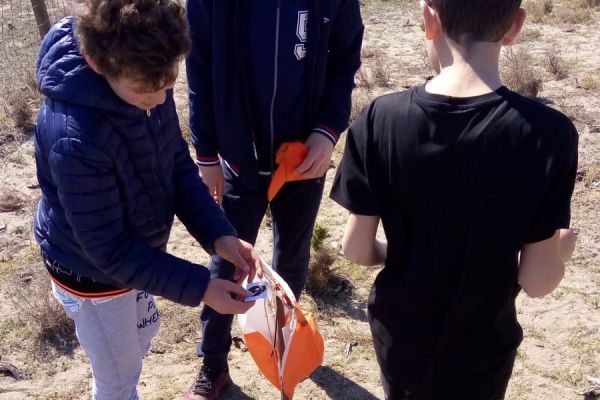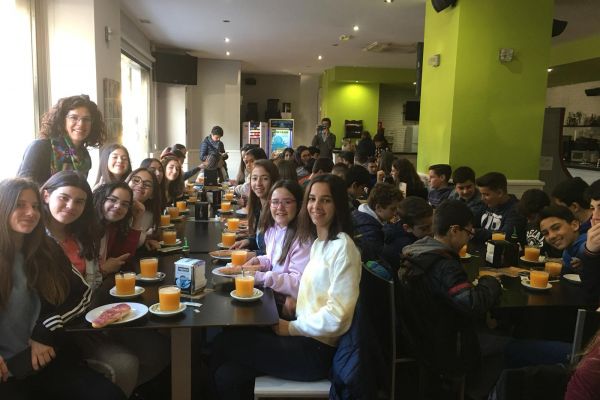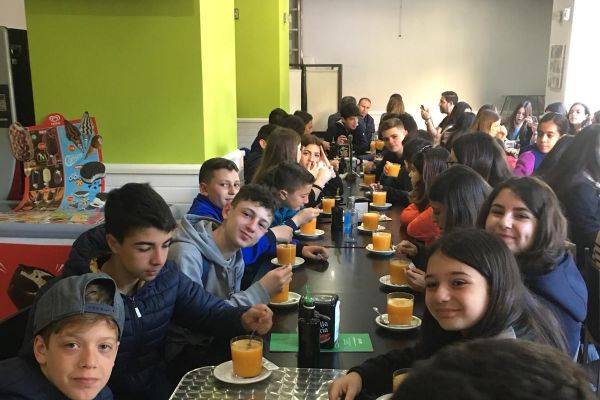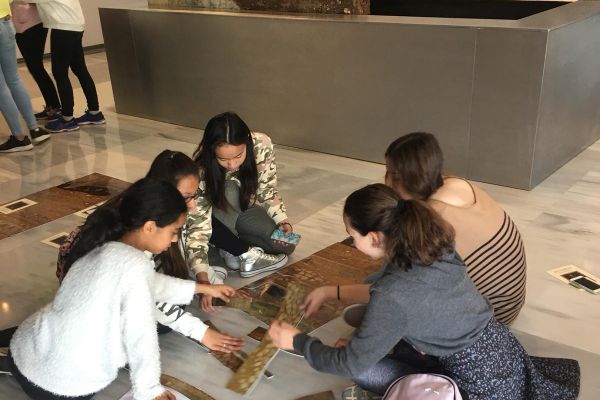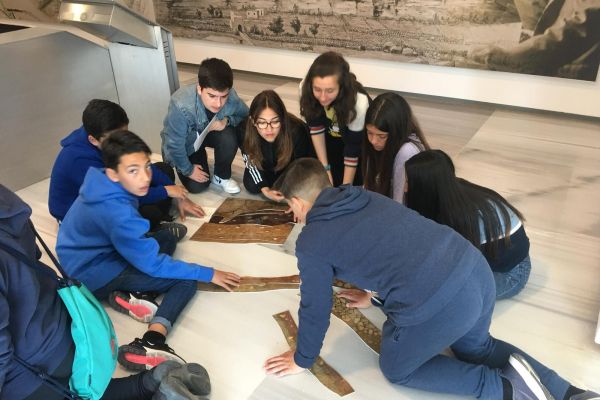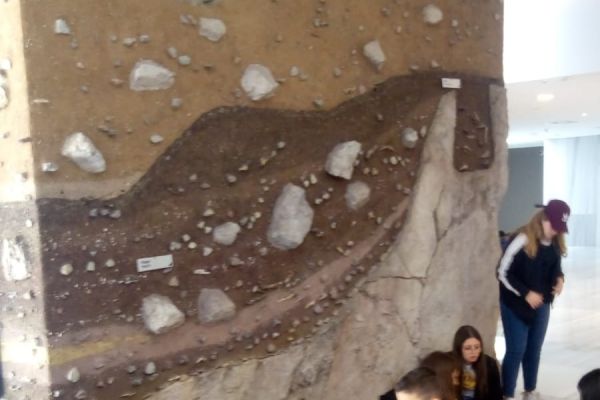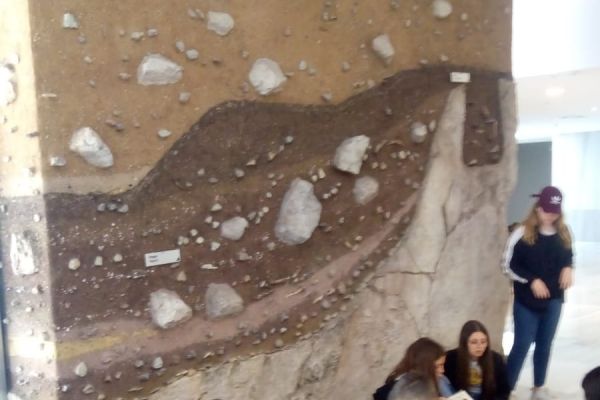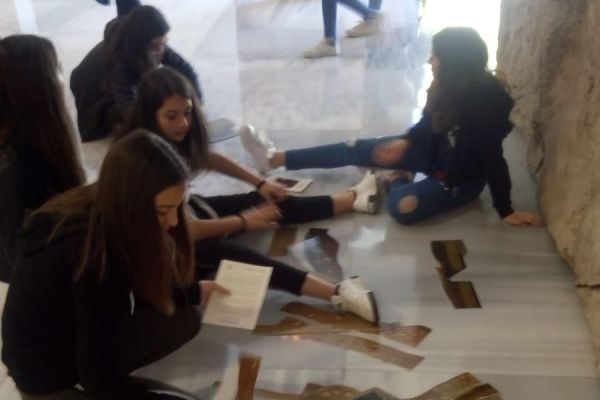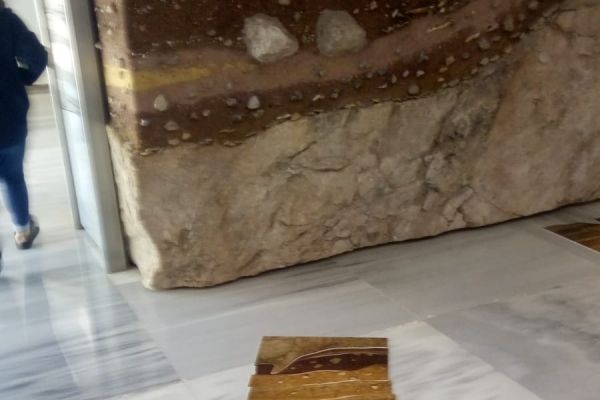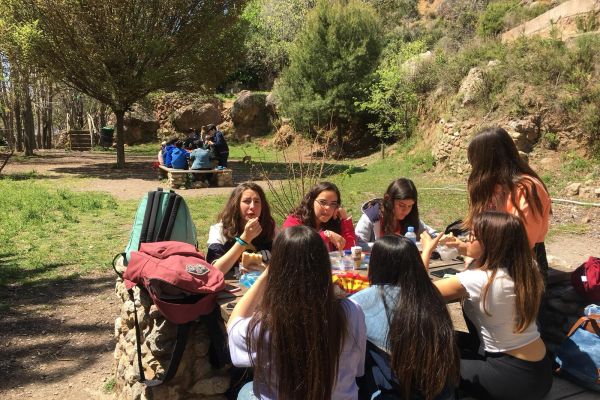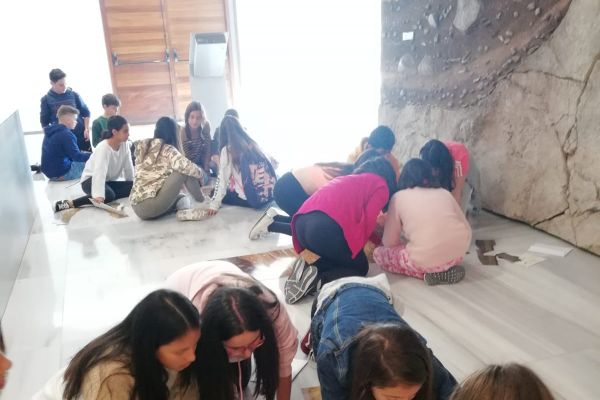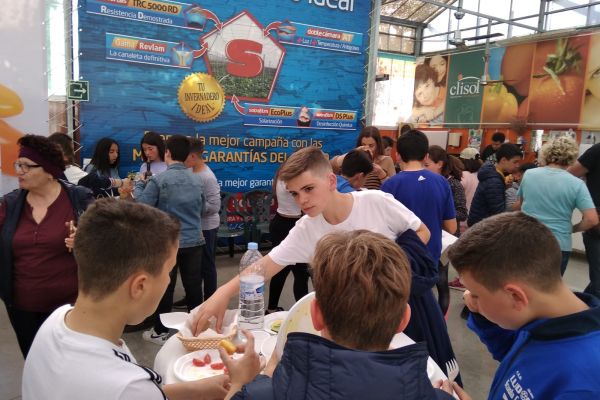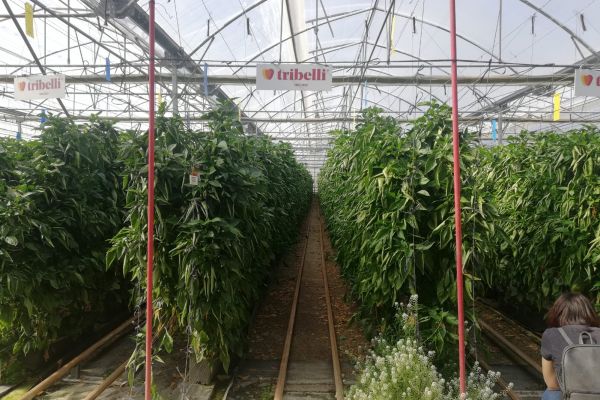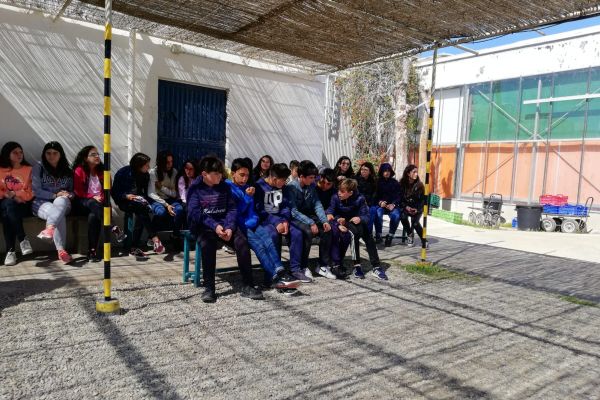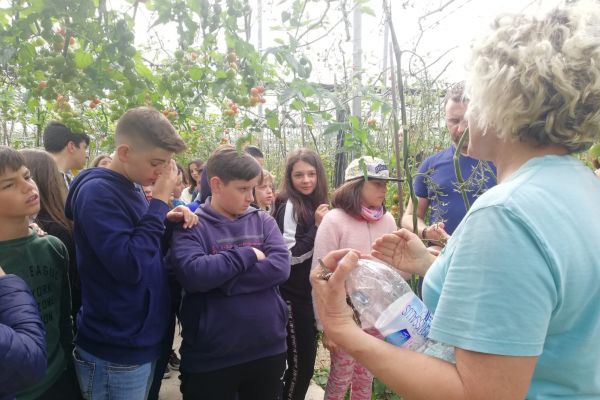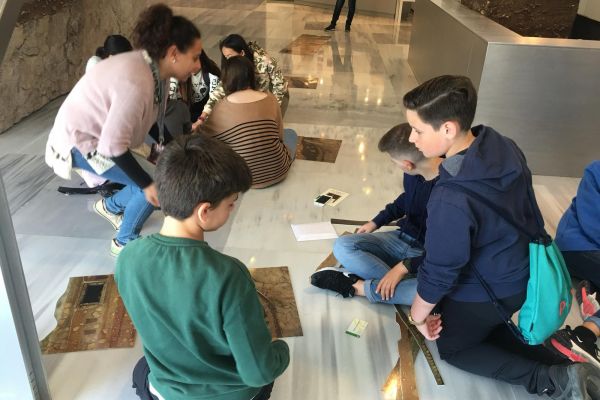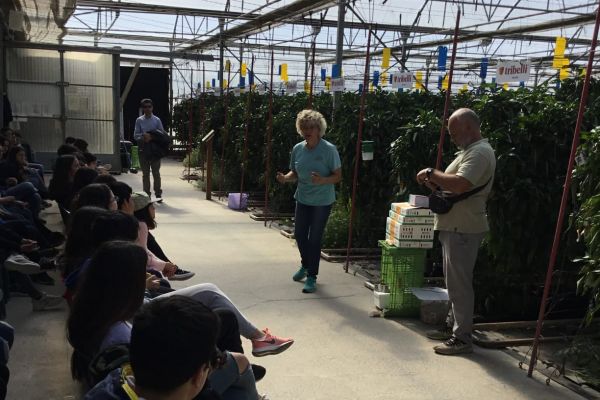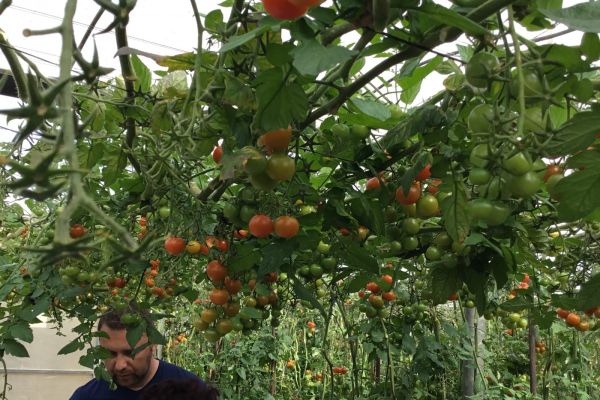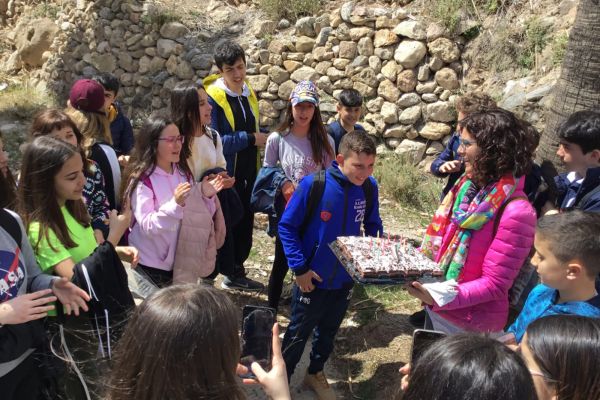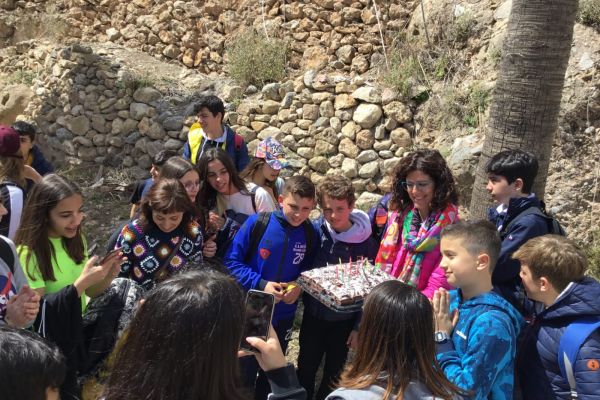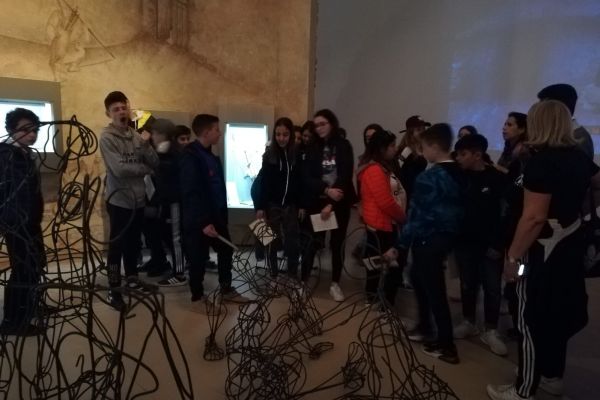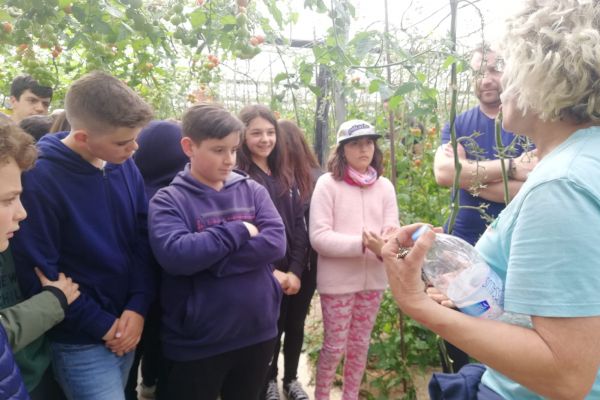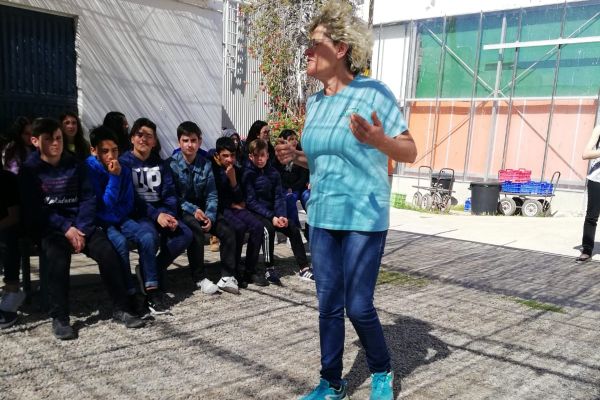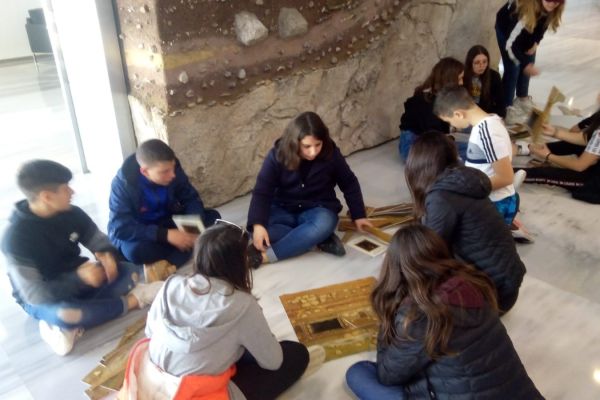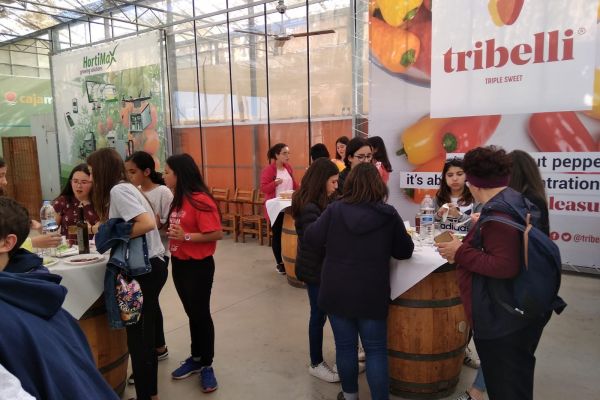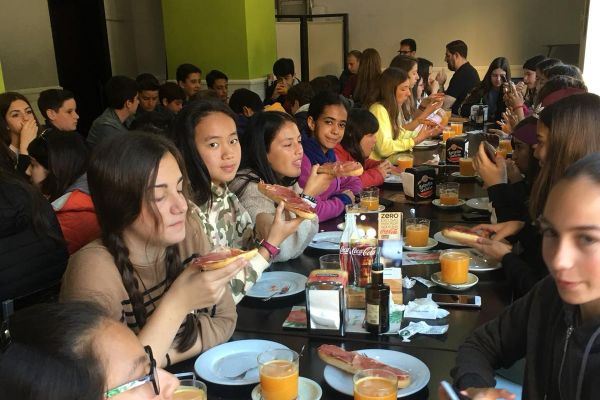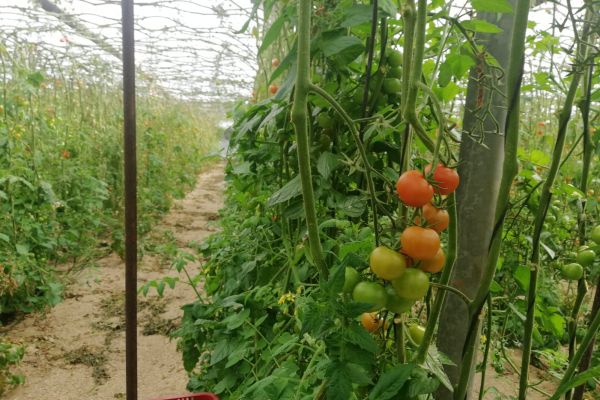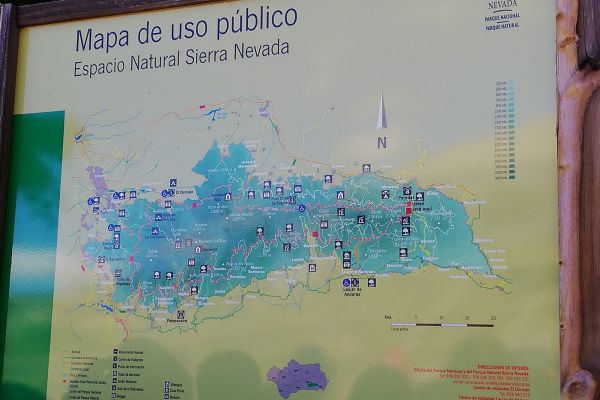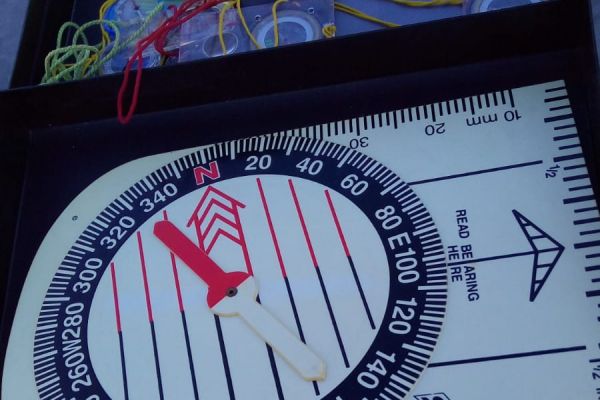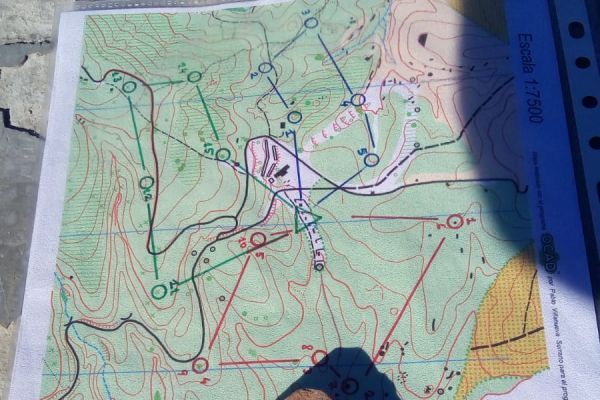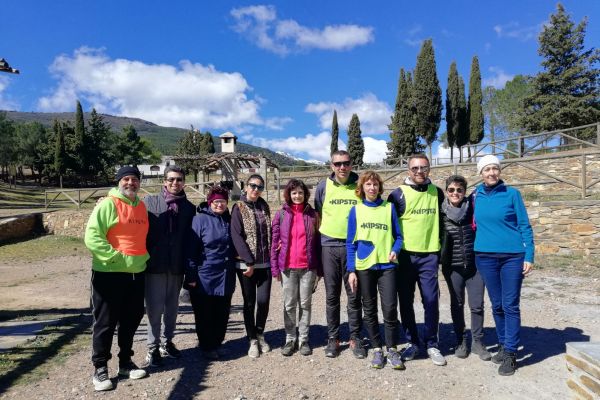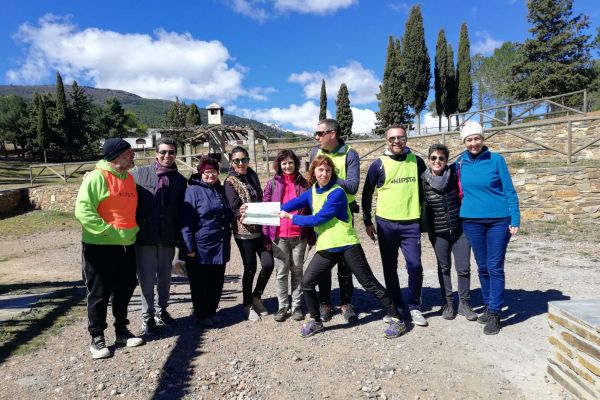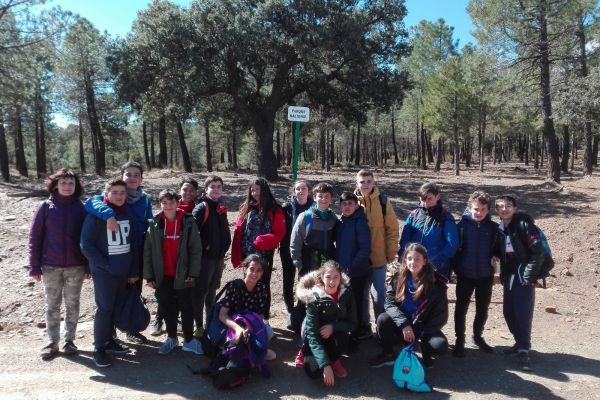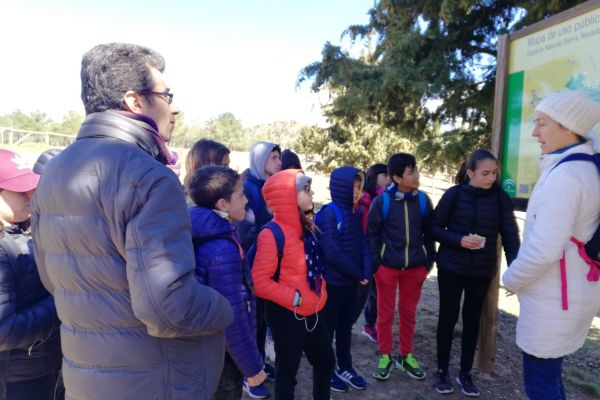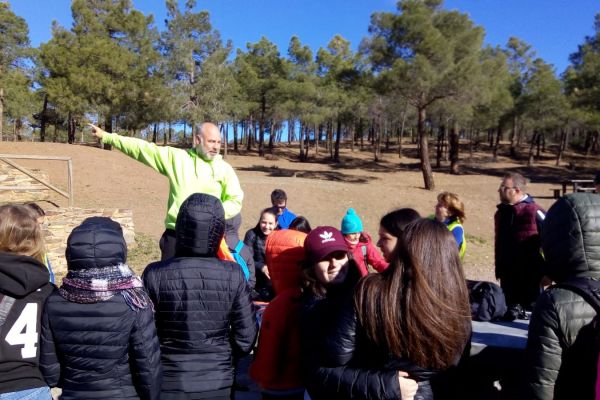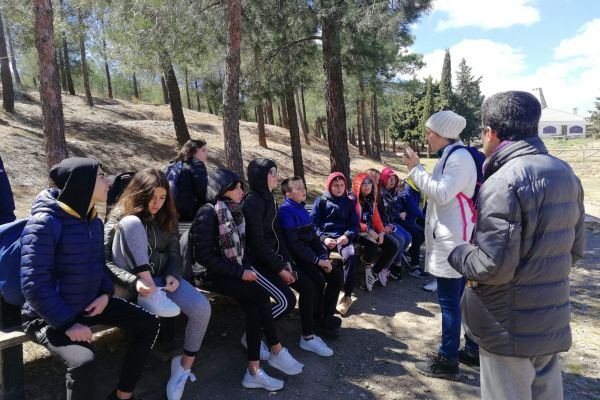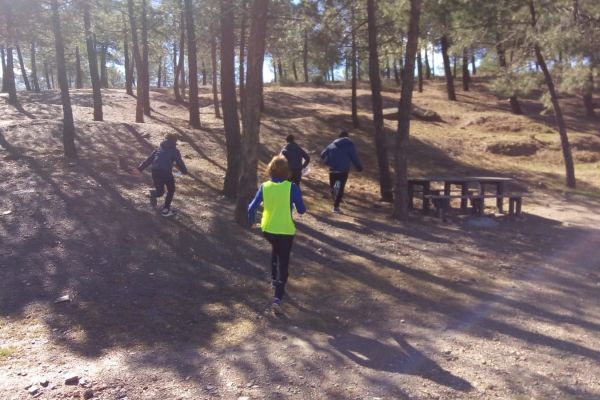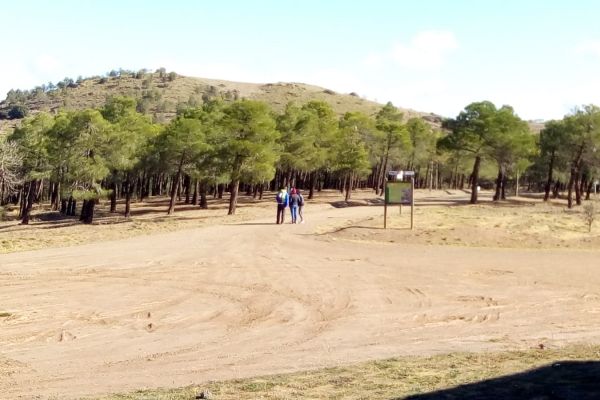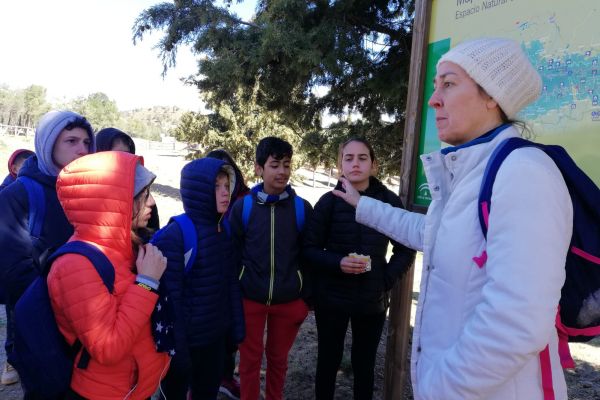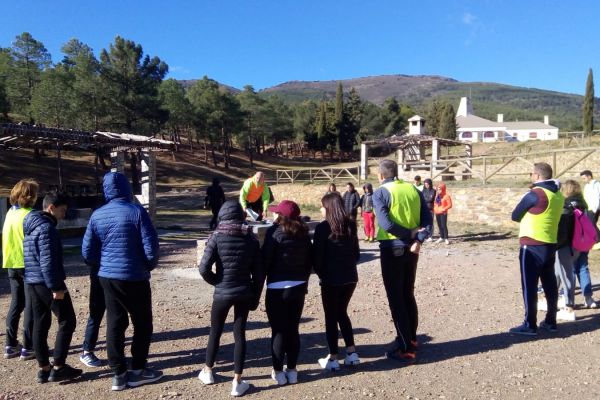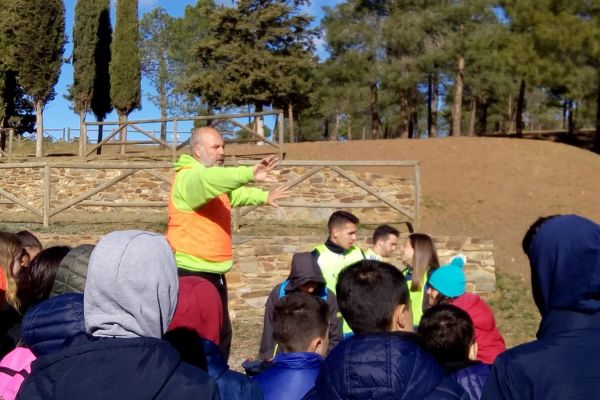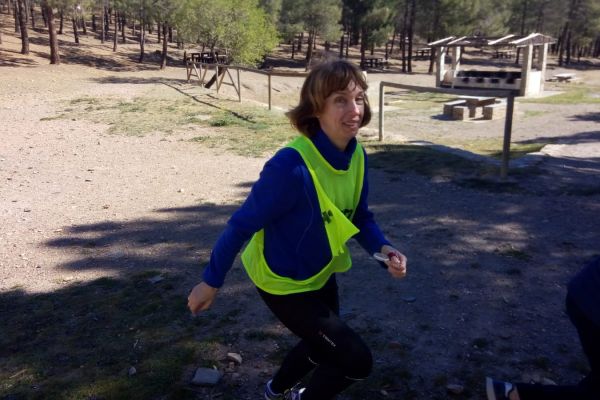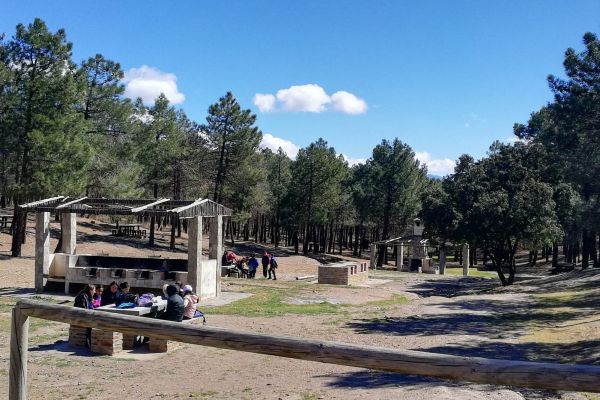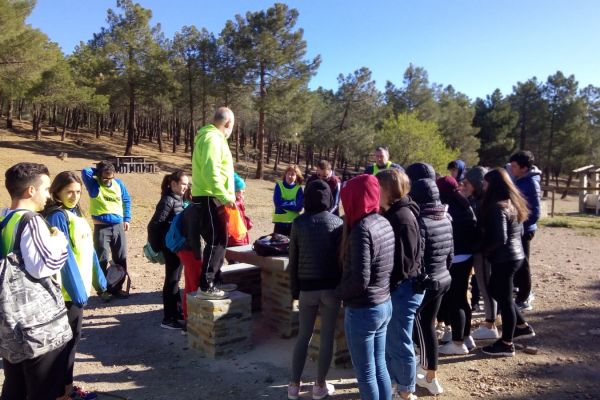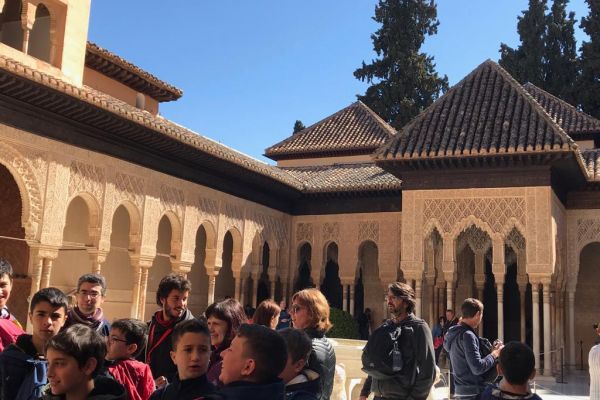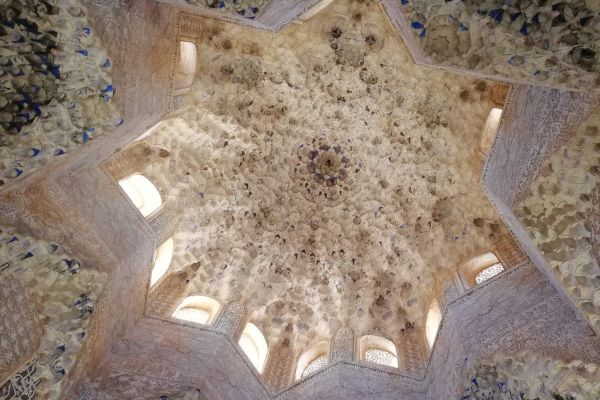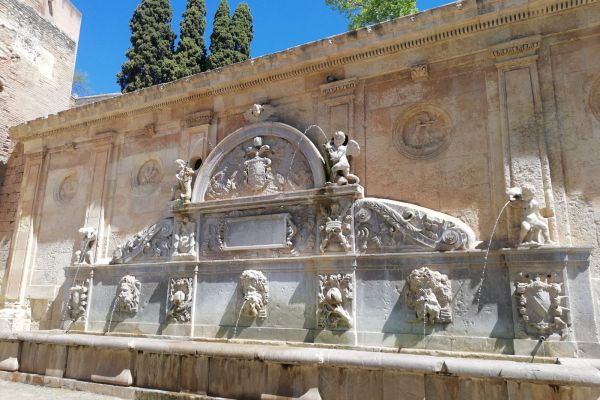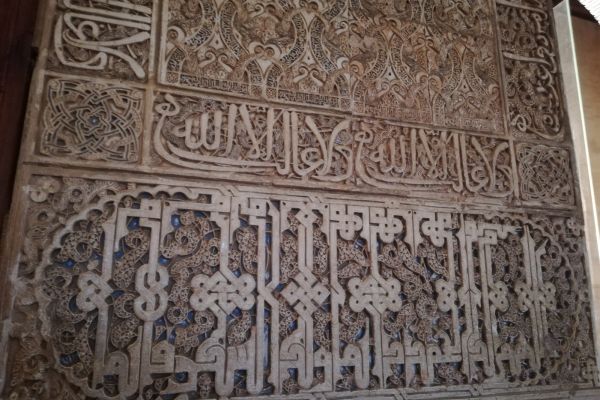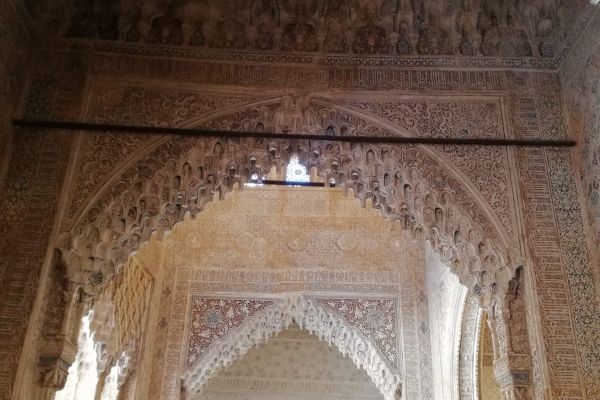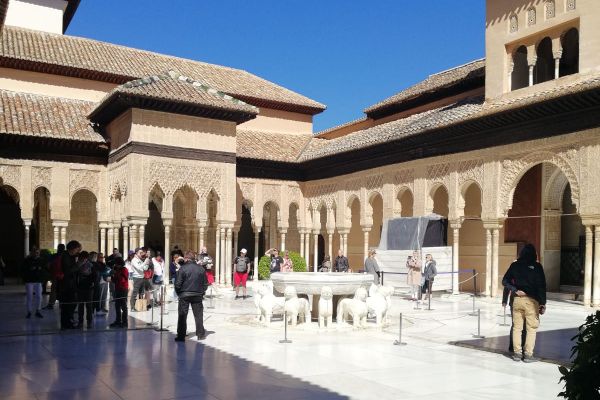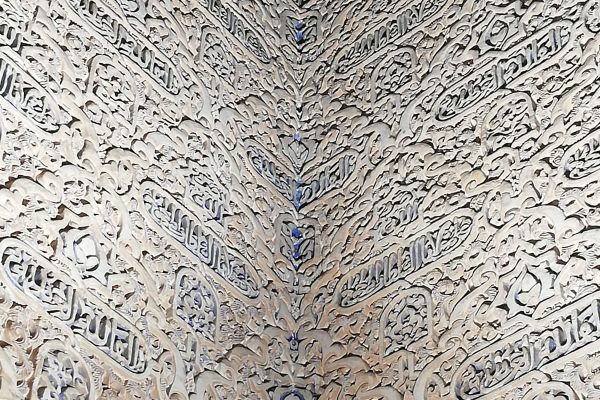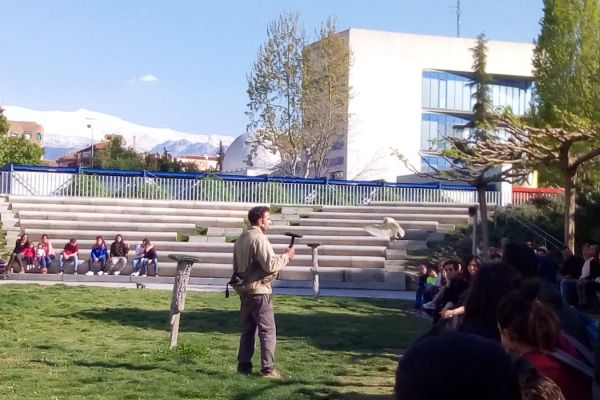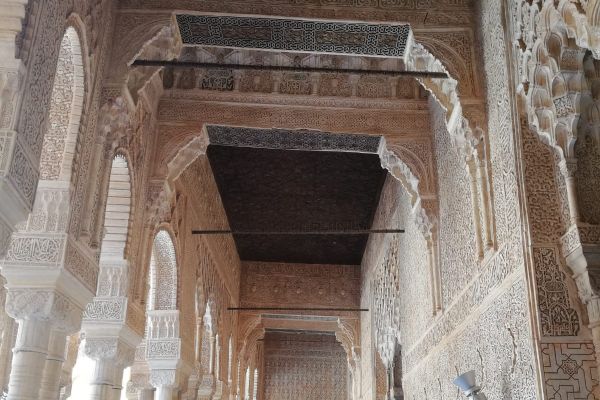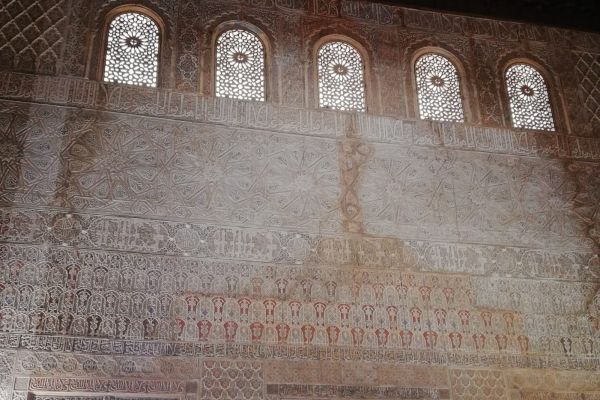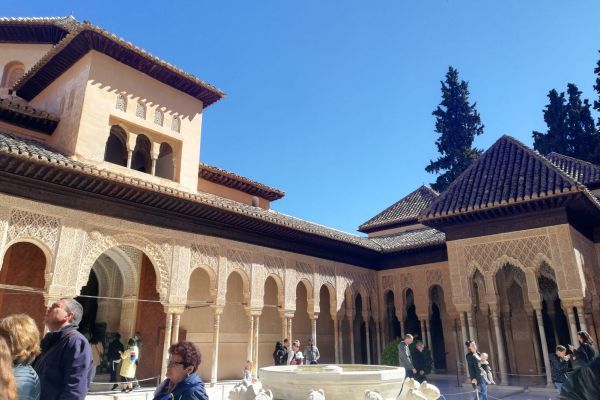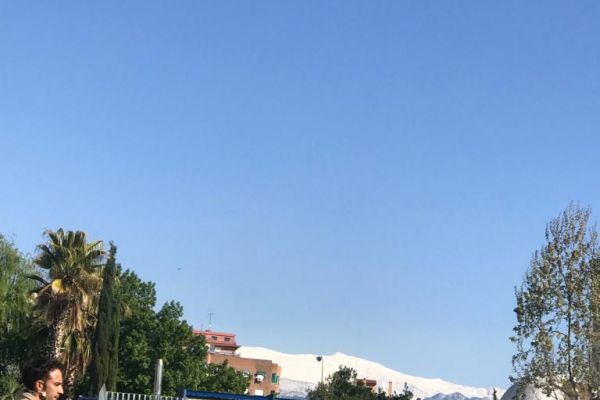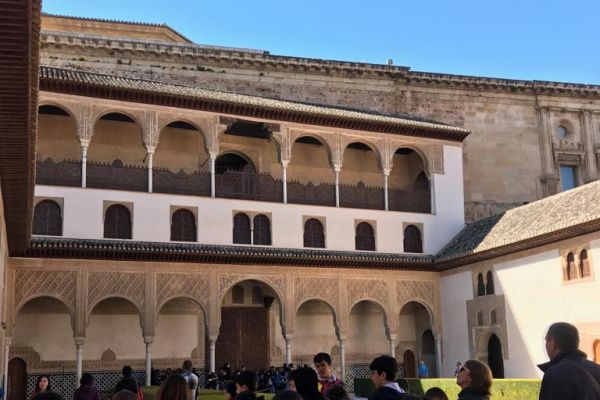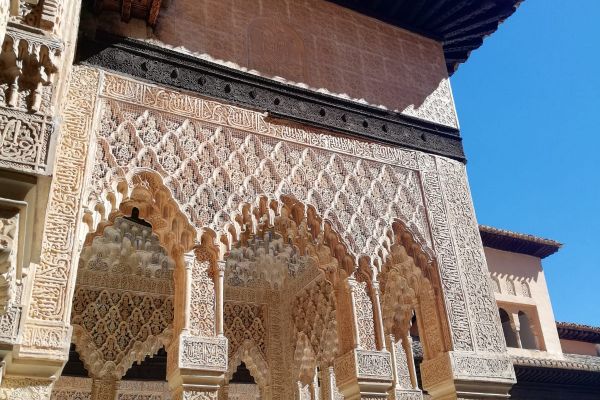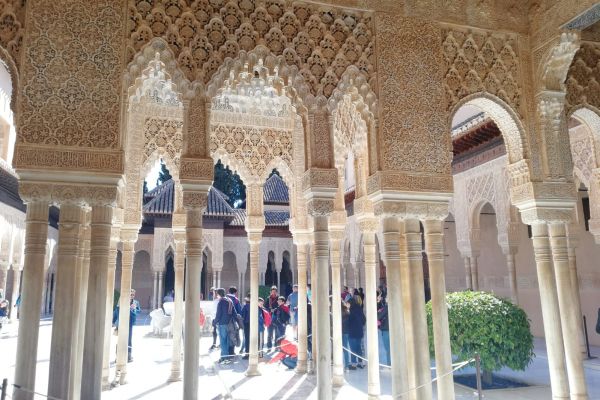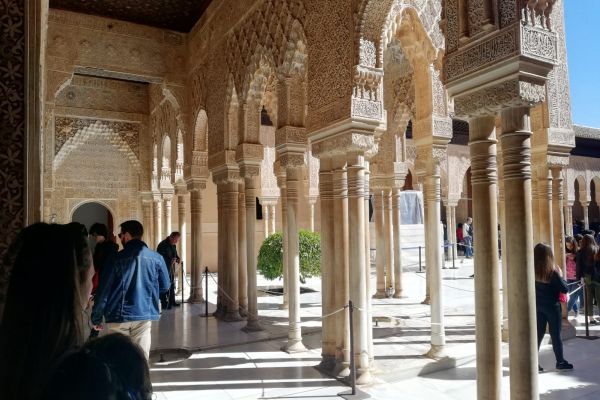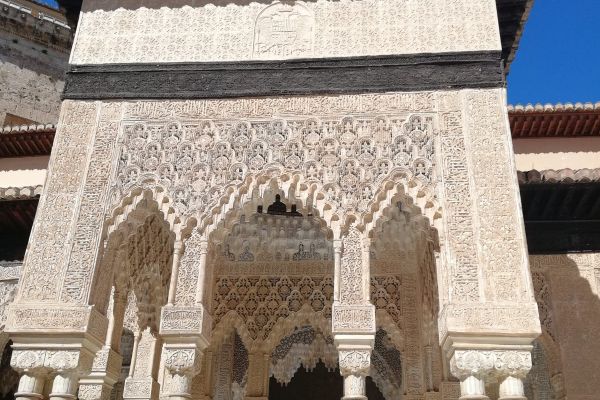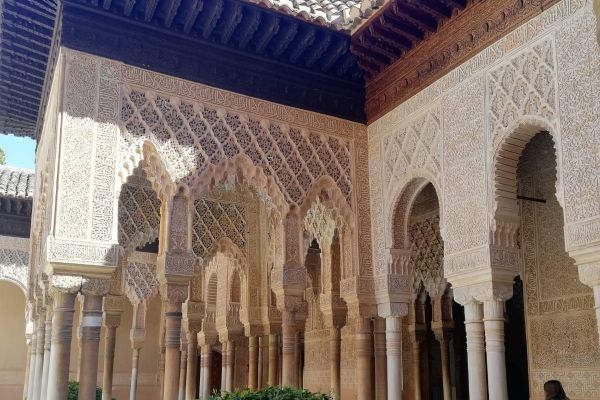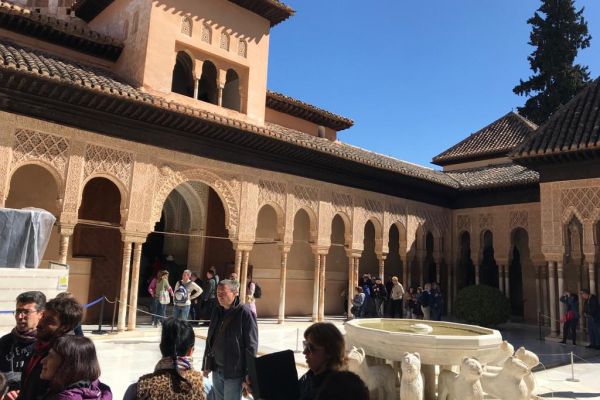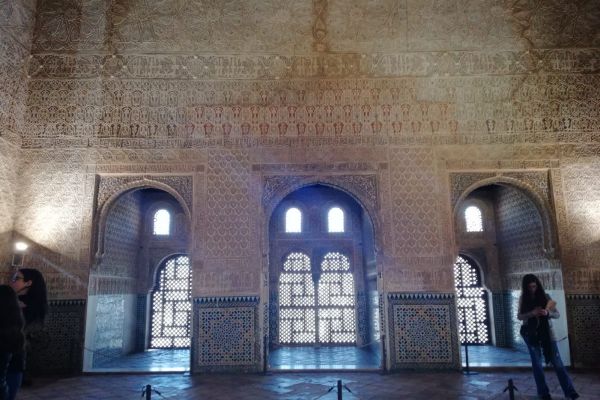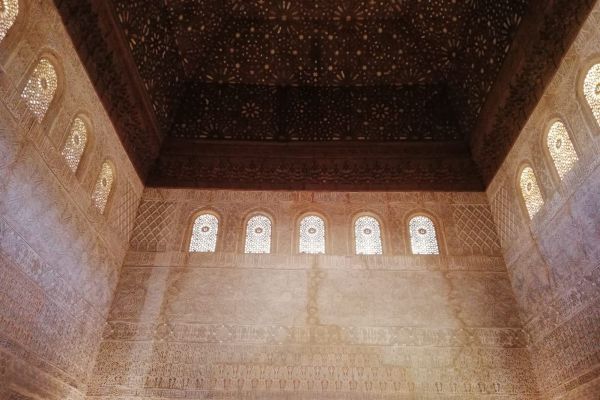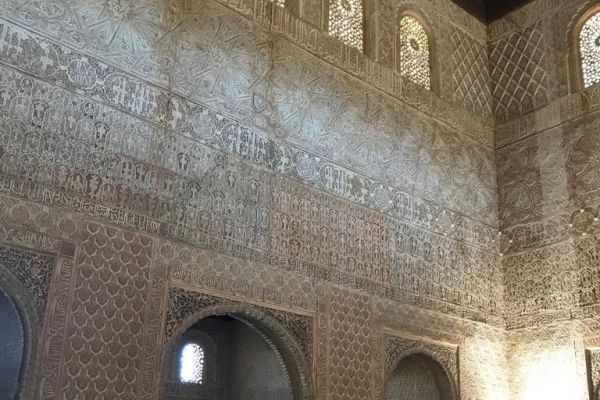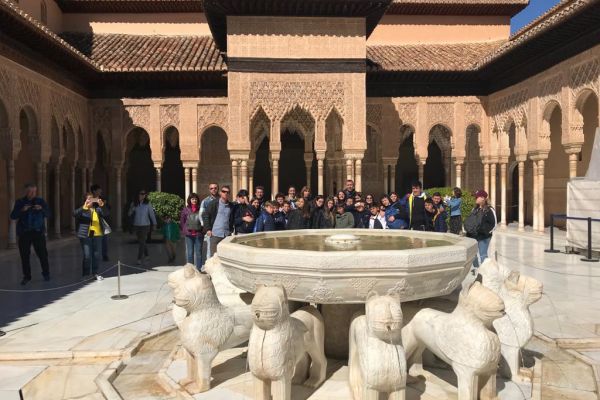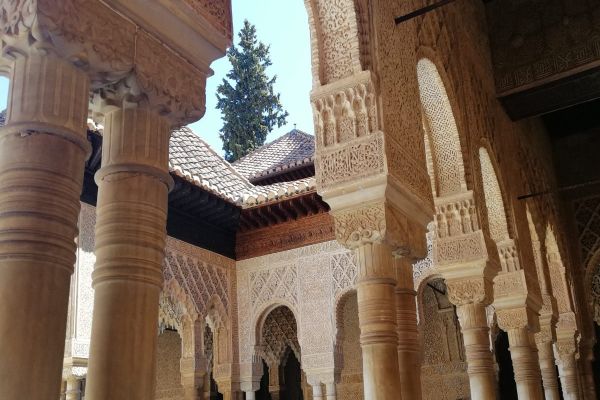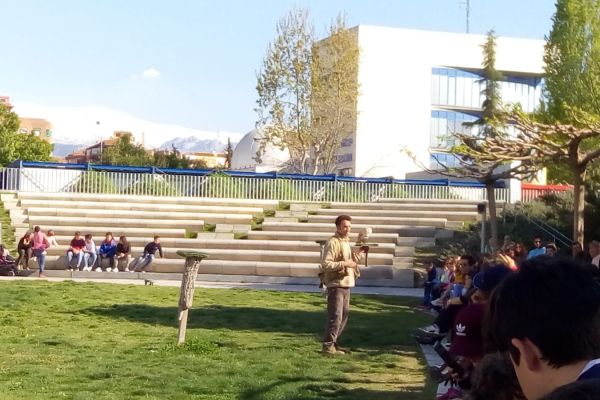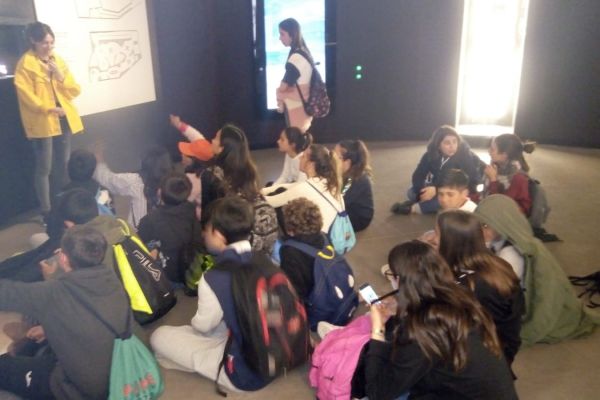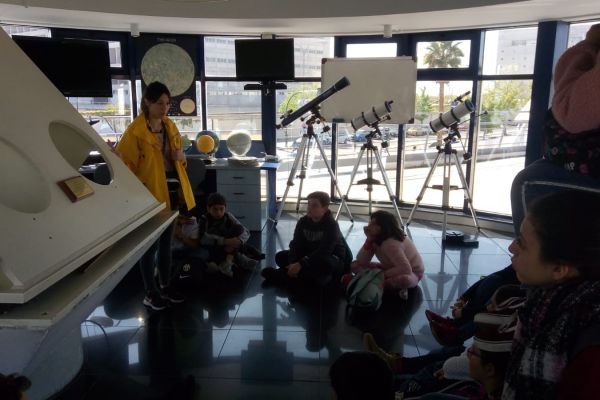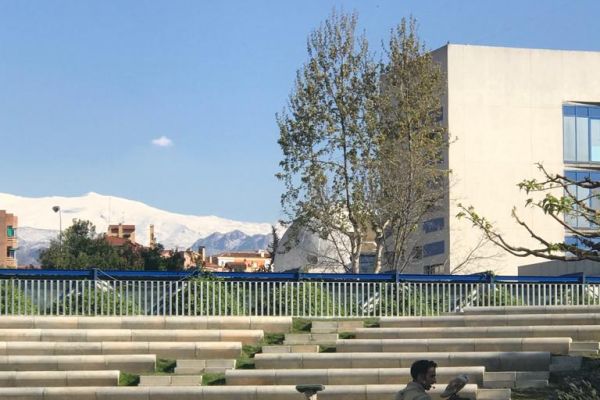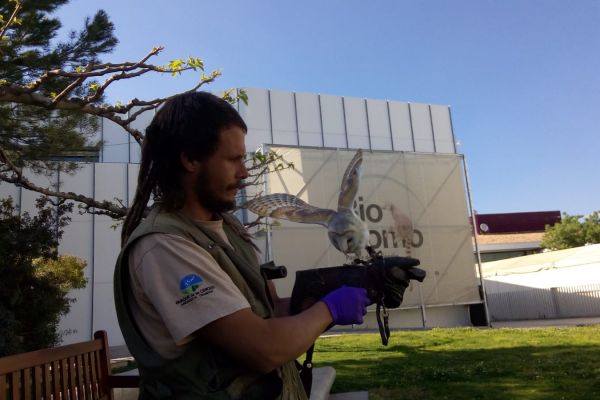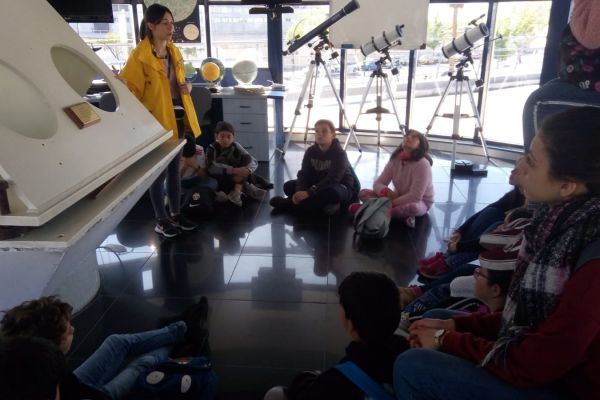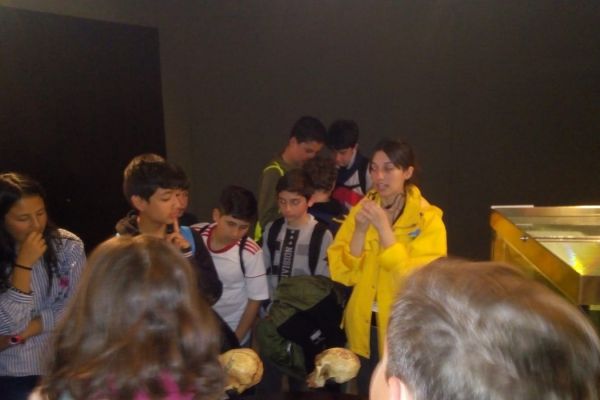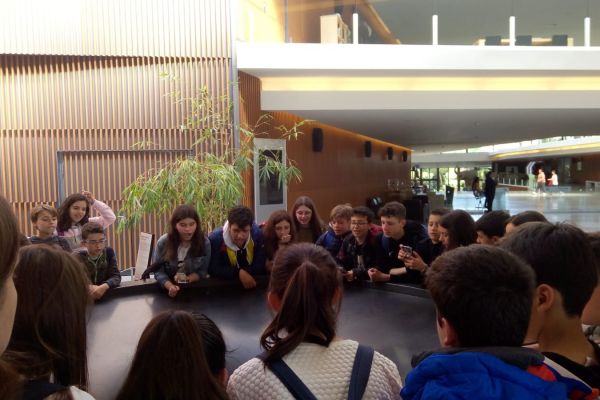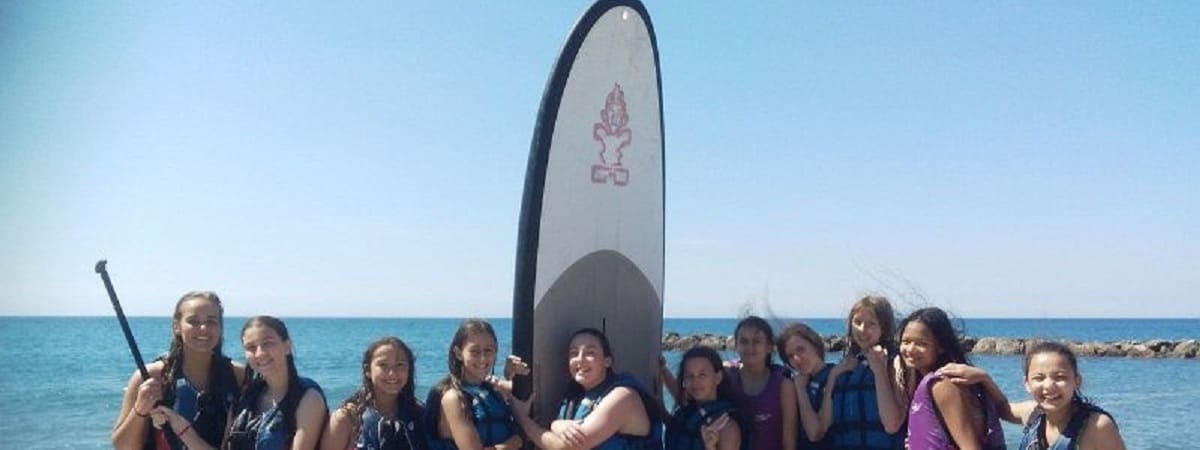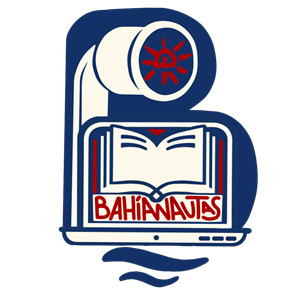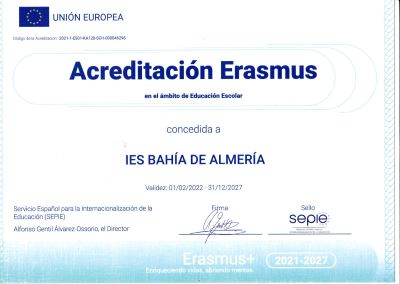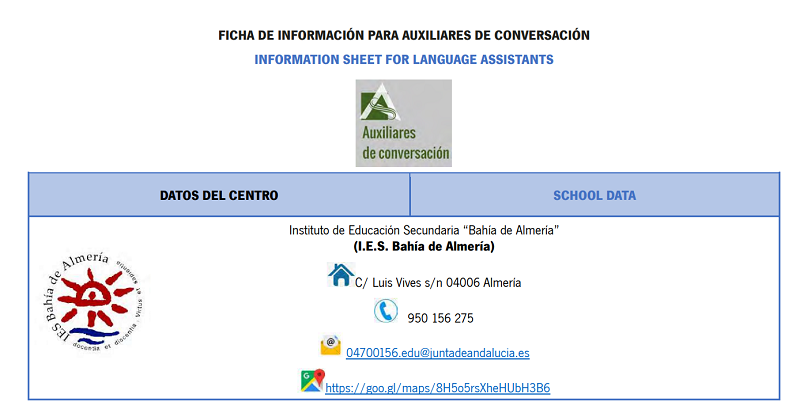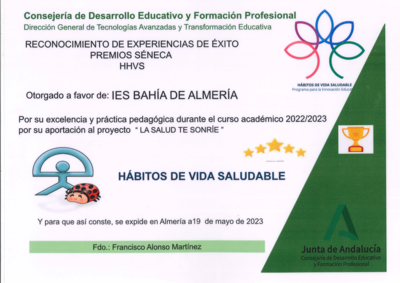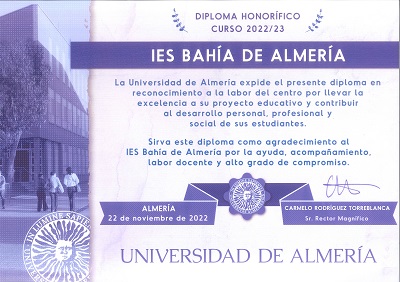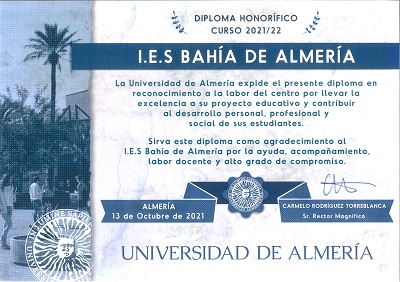- Detalles
- Visto: 8614
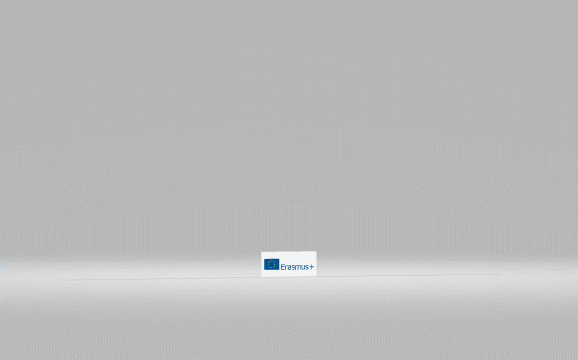
Nuestro Proyecto Erasmus+: European citizenship - cultural, historical, economic, lingual, and political dimensions
European citizenship - cultural, historical, economic, lingual, and political dimensions
Es el nombre del proyecto Erasmus+KA229, de asociaciones escolares del que el IES Bahía de Almería forma parte como socio a partir del presente curso 209-20 hasta el siguiente 2020-21. Los otros socios del proyecto son Centros escolares de los cuatro puntos cardinales de Europa:
So, very welcome to IES Bahía de Almería!!
El proyecto está dirigido a promover el conocimiento de los valores de la herencia común en los jóvenes ciudadanos europeos, desde los tiempos de los antiguos griegos y romanos. Con el diseño de este proyecto, a los jóvenes ciudadanos europeos se les da la oportunidad de explorar la historia de Europa, el desarrollo de estas entidades políticas y sociales que conduce a los logros culturales básicos, y que han conducido al cuerpo político actual de la llamada Europa. También se tendrán en cuenta otras influencias culturales que han tenido impacto en la actual situación europea desde la caída del Imperio Romano, ya que han contribuido en gran medida a la diversidad de Europa y por lo tanto a su amplio patrimonio.
Dadas las necesidades educativas de los países miembros de la UE, la edad de 12 a 15 parece ser el principal grupo objetivo para promover la toma de conciencia de los logros culturales y para ayudar a construir una base común de vivir juntos en el entendimiento mutuo, la tolerancia y el apoyo. De esta manera, los jóvenes pueden desarrollar un sentido cada vez mayor de los valores fundamentales que son necesarios en un mundo con creciente complejidad con más oportunidades, pero también más amenazas y riesgos que nunca.
El número de participantes activos en cada centro asociado depende del marco organizativo en el que el proyecto se está llevando a cabo. La base se forma como un grupo de alumnos y profesores que diseña y ejecuta activamente el proyecto y que forman un enlace a las clases curriculares dentro de los Centros educativos asociados. De esta manera, derivado de las actividades del proyecto, se pretende la concienciación y compromiso con la ciudadanía europea.
El proyecto se divide en cinco fases con diferentes prioridades temáticas. Los equipos nacionales intercambiarán sus hallazgos en las plataformas digitales del proyecto mientras se trabaja en estas y presentarán y discutirán los resultados durante las sesiones de aprendizaje, de enseñanza y de formación. Las cuatro actividades a nivel nacional estarán acompañadas de una actividad en Bruselas, proporcionando una oportunidad única para ganar experiencia práctica en un organismo europeo de gobierno.
Las actividades del proyecto serán supervisadas y evaluadas por los alumnos y profesores al final de cada etapa del proyecto y publicadas en las plataformas del proyecto. Se espera que los resultados de proyectos sirvan para contribuir a los planes de estudios regulares en términos de un enfoque orientado a la cultura europea, la historia, la economía y la política. El uso de un idioma extranjero también será una parte integral de la superación de diferencias culturales y sociales de las fronteras, lo que contribuye a un mayor sentido de internacionalismo y el conocimiento de bases comunes y la diversidad entre los jóvenes europeos. Con nuestro producto final esperamos lograr un compendio de todos los aspectos de una conciencia aumentada y el compromiso de la ciudadanía europea
Nuestra prioridad fundamental es la educación de los alumnos europeos de diferentes regiones y países no sólo para conocer y prácticamente experimentar el concepto de una comunidad europea común, con todos los aspectos históricos, culturales, sociales, político, económico, y lingüísticos que compartimos, y sus beneficios, sino también sus problemas.
En el transcurso del proyecto, se han previsto cuatro reuniones en los centros asociados y una excursión a Bruselas.
Los resultados de cada reunión se mostrarán en nuestra página web del proyecto, y en cada centro asociado, que se presentarán, además, en ocasiones especiales como actividades extracurriculares o eventos de puertas abiertas, como carteles o presentaciones orales. Para una mayor audiencia, estamos pensando en el diseño de revistas que muestran los productos de cada aprendizaje, la actividad de enseñanza y formación y se distribuyen en el área de influencia de cada centro asociado.
¿Cómo están previstas las actividades para llevar a cabo la consecución de los objetivos del proyecto?
La fase inicial del proyecto consiste en el encuentro activo de los alumnos con el concepto de vivir en un continente con fronteras abiertas, que han estado experimentando. Con la presentación de sí mismos y su entorno educativo, social y geográfico, crean oportunidades para reflejar diferentes aspectos de la vida en diferentes países y, por lo tanto, procedentes de diferentes orígenes. Esto proporciona la base para el primer tema del proyecto, en el que consideramos nuestra herencia común, la cultura y la historia, y qué similitudes y diferencias han resultado de esto.
La segunda fase que conduce al segundo aprendizaje, la enseñanza, la formación y la actividad tiene que ver con la dimensión histórica de las sociedades y las naciones europeas. Con una abundancia de acontecimientos históricos que conducen a la situación actual de la Unión Europea, con todos los logros culturales, tecnológicos y políticos, nuestra historia europea también proporciona una gran abundancia de lecciones sobre qué desastres han provocado la falta de entendimiento entre sí, los egoísmos nacionales y la ambición hegemónica, el supremacismo, y el fracaso en la observación de los conceptos fundamentales de la humanidad
El resultado político actual de este desarrollo histórico, la UE, es el tema del tercer aprendizaje, la enseñanza y la actividad de formación. Los participantes conocerán las estructuras fundamentales de la cooperación europea y la asociación, unidos en una comisión que controla la cooperación de los socios internacionales y sin que les sea aplicable.
Nuestro cuarto aprendizaje, la enseñanza y la actividad de formación conducen a la perspectiva que la UE lleva a la vida de los alumnos. Se expresarán las esperanzas y se desarrollarán ideas para el diseño de su futuro. El intercambio de estas ideas en el marco de un proyecto internacional también traerá consigo una mayor comprensión y el sentido de nuestra unión. Debido a que los alumnos han trabajado en el aprendizaje, la enseñanza y las actividades de formación anteriores, se darán cuenta de que su futuro invariablemente se entrelaza.
El último aprendizaje, la enseñanza, la formación y la actividad mirarán hacia atrás en los logros del proyecto mediante la comparación de los objetivos iniciales con el resultado del mismo.
- Fechas Descripción
- 10/2019 El patrimonio y la cultura europea
- 05/2020 Historia europea
- 10/2020 La política y las instituciones de Europa
- 03/2021 El futuro de Europa
- 05/2021 Evaluación, difusión y perspectivas generales
IES Bahía de Almería se hará cargo de la construcción y mantenimiento de la página web del proyecto
Centros asociados al Proyecto
- Ubbo-Emmius-Gymnasium. Leer (Germany)
- 2 Istituto Comprensivo G. Melodia. Noto (Italy)
- Agrupamento de Escolas D. João II. Caldas da Rainha (Portugal)
- Arsakeio Gymnasium Thessalonikis. Thessaloniki (Greece)
- Colegiul National "Iosif Vulcan". Oradea (Romania)
- IES Bahía de Almería, Almería (España)
Movilidad: Caldas da Rainha. Nov. 2019

Este pasado sábado, 9 de noviembre, a las 6 de la tarde ha aterrizado la expedición de alumnos y profesores formada por los participantes en el programa Erasmus+ K229 de Asociaciones Escolares: "EU Citizenship. Its historic, lingual, political, cultural and economic dimensions" (Ciudadanía europea desde sus dimensiones histórica, lingüistica, politica, ecómica y cultural).
Durante 5 intensas jornadas los 6 alumnos participantes en esta movilidad han realizado diversas actividades relacionadas con los temas del proyecto. Comenzamos con actividades para romper el hielo, seguidas de las presentaciones generales expuestas por los propios alumnos, de sus centros, ciudades de origen, regiones y paises... Nos enseñaron el centro anfitrión "Agrupamento de Escolas Joao II" en la localidad portuguesa de Caldas da Rainha, que a continuación tuvimos ocasión de conocer. Especialmente sus famosas Caldas da Rainha, osea los Baños de la Reina que da origen al nacimiento de la ciudad, y al hospital de aguas termales en que se convirtió con la venida del nuevo siglo.
Durante el transcurso de la semana se alternó el trabajo en grupos multinacionales sobre los temas propuestos meses atrás y previamente tratados en los talleres o clubs de Erasmus de los diversos centros. (Rutas terrestres y marítimas, bibliotecas y universidades, lugares con baños o aguas termales, y personalidades de los diversos países). En un clima de trabajo y en el idioma del proyecto, el inglés, los alumnos y alumnas participantes decidieron el material y el formato para la exposición final que se realizó el último día. Tuvimos ocasión de comprobar el alto nivel de la competencia "hablar en una lengua extranjera delante de una audiencia" demostrado por la mayoría de los participantes.
Alterno a este trabajo de grupos en la biblioteca y el auditorio, los participantes pudimos conocer la hermosa localidad de Caldas con su hospital termal, Sintra y su precioso castillo real con sus miles de historias asociadas, alguna de ellas con nuestro país "Espanha"; Mafra y su hermoso monasterio-palacio-biblioteca. El jueves fuimos a San Martinho do Porto y a la meca del surf, Nazaré con sus espectaculares vistas del rompeolas...concluyendo con el Monasterio de Alcobaça y asistir a la feria de los dulces y repostería internacional.
La semana se cerró con la ya mencionada exposición de trabajos realizados por parte de los grupos multinacionales y la evaluación general del encuentro, durante la mañana. Por la noche tocó la diversión y el esparcimiento en una bolera local y despedida de la actividad.
Los profesores participantes mantuvimos numerosas reuniones en un ambiente de trabajo perfilando los diversos aspectos del proyecto, con vistas al siguiente encuentro en mayo en la ciudad griega de Salónica.

- Detalles
- Visto: 4498

Centros asociados al Proyecto
- IES Bahía de Almería (Spain) Centro Organizador
- Scoala Gimnaziala Maria Rosetti (Romania)
- Yahya Kaptan Ortaokulu (Turkey)
- Kauno Milikoniu progimnazija (Lithuania)
- Istituto Comprensivo Statale Ignazio Buttitta (Italy)
- Osnovna skola Vrgorac (Croatia)
Transnational Project Meeting Almería. October 2021

This first TPM was held at IES Bahía de Almería, in Almería, Spain from 4th to 6th October 2021. Two teachers from each partner school attended the meeting. The purpouses of the meeting were:
- To present institutions briefly, their educational systems and the current activities on ICT Implementation & integration into education
- To coordinate project teams and share the inter-partnership duties & responsibilities.
- To agree time and budget management of the project across partners To validate the Project Management Guidelines
- To agree on Communication, Dissemination and Evaluation and Quality Plan
- To agree the procedures to be used by means of preparation, adaptation and implementation, monitoring, reporting, online presence and evaluation
- To agree the documentation to be used such as travel costs, time sheets,etc
- To agree on the website contents/tasks and responsibilities to develop it in a best way
- To agree on the project logo and project corporate design
AGENDA:
Day one: 4th October
8:30 Headmaster, delegate of education and our province multilingual responsible, were present to welcome our partners and to support Erasmus+ program. Parents association from our school were also invited. Spanish folklore showed by our students
9:00 Partners’ Presentation (10’ aprox per partner) and exchange of presents
10:00 Reception by Educational Local Authorities
10:30 Visiting the school
11:15 Coffee break
12: 00 Work session:
- Overview of project’s aims and objectives -Discussions about the details of the Project’s Management Plan -Partners’ responsibilities and tasks -Details of the Work Plan and deadlines
- Budget organization
14: 00 Partners questions- End of first day
Tuesday 5th
08:30 Work session:
- Details of the Communication Plans
- Financial Rules. Justification
- Details of the Monitoring and Assessment plan
- Briefing for Risk’s plan
10: 00 Short walk around the school and coffee break
11:00 Almería cultural
14:45 Partners disscusion. End of day 2.
Wednesday 6th
09:00 Work session:
- Discussion about the second day subjects
- Activities to develop per partner
- Quality of project’s final results
- Dissemination and Exploitation
11:00 Coffee break
12:00 Archaelogical Museum
13:30 Final work session at the school. - Fix Date of next meeting - Summarizing activities for coming months - awarding Attendance Certificates
14: 45 - Quality Questionnaire - End of the meeting
KICK OFF MEETING MINUTE: We detailed the
- Implementation Plan with activities for the next period October-November 2021 Partners’ responsibilities and tasks Communication Plan Monitoring plan
- Evaluation in schooJ and Evaluation of the partnership Publicity and the Dissemination of the activities and final products Financial Rules Risk Management Plan We analyze achievement of the following indicators:
- knowledge about the importance of European local cultures and identity of the people
- communication skills and civic behavior of pupils
- active participation of pupils and teachers at project’s activities
- pupil’s and teachers assuming project’s responsibilities and their involvement in project’s management
We established the date for the:
- next meeting in Lithuania during 15 — 11.2021
- the activities during the next Short-term joint staff training events” CULTURAL HERITAGE & WEB2.0 AND CLIL”
- Deadline for delivery next outcomes of the project and responsibilities among the partners
- the activities developed in the project till now, achieved the project’s objectives
- After evaluations carried out at local and partnership level, it was concluded that the project is developed according to our expectations
- The Impact and Dissemination of the project are assessed as good and very good.
Learning, Teaching and Training Activities Lithuania. November 2021

This 1st project LTTA focused on preparing teachers from all partner schools on ICT use in project activities implementation and how to integrate intercultural based educational courses into regular school subjects. It was held in Kauno Milikonių progimnazija, Kaunas (Lithuania) from 15th to 19th November 2021.
DAY ONE:
Mr. Janas Ryzgelis, the school headmaster, Kauno Milikonių progimnazija, opened the meeting with the welcome speech. He talked about the main objectives of the Erasmus + project and the training sessions.He highlighted the importance of this education theme to promote the continuing professional development of educational staff and students with different cultural heritage. It has also been stressed that it is necessary to create a teaching curriculum tailored to such situations, focusing on eliminating students' skills shortages in basic subjects. It is also necessary to prepare educators with competences in teaching and using modern pedagogical tools aimed at students at risk. Introduction to the school and attended different clases
- Presented informative materials (Power Point, movies) about the educational systems in their countries. Module 1: “How to deal with different cultural background”
- presented of a material about the meaning of the “social inclusion” in school All the participants present 2 cases study of social inclusion situations that occurred at their schools and they have personally observed.
In the end of the first day there were:
- Discussion and feedback from all partners:
- discussions about partners’ school involvement in educating European values like tolerance, solidarity, respect for others.
DAY 2, Tuesday, November 16, 2021
The second day began with the Module 2: "ICT and CLIL in education" and Digital resources for cooperative and project based learning as well as CLIL methodologies.
- workshop regarding using ICT (WEB2.0 TOOLS) in education and getting familiar with useful apps for CLIL and related it with the 4Cs; The participants at the workshop were the partners and the teachers of the hosting school and also the members of the local authority Mrs. Raimonda Jančiauskienė local authority from Education department (Lithuania) (scholastic authorities) and local ICT trainer Mr. Gytis Cibulskas, KTU lecturer (Lithuania) Traditional handicraft workshops related to Lithuanian folklore and Lithuanian cuisine. Participants were encouraged in creativity, meeting others, knowledge of other cultures and participation.
The results of the Module 2 of the Short – Term Joint Training Event were the following:
- The implementation of all these new resources and methodology in daily teaching practice.
- Participants were encouraged in creativity, meeting others, knowledge of other cultures and participation.
- Briefing on the results of the training event
DAY 3, Wednesday, November 17, 2021
Module 3: eTwinning platform
- discussion about effective ways of using the eTwinning network at schools. The main goal of the discussion was providing the theoretical & methodological framework for the usage of the eTwinning platform. Mrs. J. Reklaitienė introduced to the participants eTwinning platform usage and important tools which allows every partner to work on the platform in a coordinated way in the future meetings.
- Vocabulary games in foreign languages. The participants presented the vocabulary games they use in teaching foreign languages at their schools. All the partners learned how to use and practiced them and got acquainted with the importance of usage while learning-teaching foreign languages. Handbook “ICT and CLIL in education” Activities and tools
- Practical training. All the partners and local team practiced ICT tools presented by Mrs. Eglė Paliliūnaitė, Mrs. Jurgita Bartainienė, Mrs. Jolanta Reklaitienė and made a final product of the meeting.
DAY 4, Thursday, November 18, 2021 Connection between the school and the project’s aims:
- Discussion about possible risks in rolling up of the project’s activitie
- Development of Problem Solving- Effective Communication Visit on cultural heritage to the city of Kaunas.
Participants took part in guided excursions around Kaunas and its sites and got acquainted with the Capital of Culture in 2022. Discussion and feedback from all partners
DAY 5, Friday, November 19, 2021
Museum education. Visiting
- Vilnius and Trakai. All the partners visited Vilnius and Trakai and got acquainted with the cultural heritage and allowed us to strengthen links between the different cultures of the project.
- Discussion and feedback from all partners. All the partners briefed on the results of the training event. They attended the farewell ceremony and got a mobility certificate award.
The day ended in a briefing on the results of the training event with the evaluation through questionnaires.
Learning, Teaching and Training Activities Turkey. March 2022

This is the 2nd project LTTA in TURKEY. Spain,Italy,Romania,Croatia and Lithuania have explored Turkish culture with the help of Turkish host pupils. Participants: 4 pupils and 2 teachers from each partner school. This LTTA was held YAHYA KAPTAN ORTAOKULU , Izmit, from 21st to 25th March 2022.
DAY 1:Arrived at school, Open ceremony with songs and turkish dance exhibition. school visit. Illustration of traditional song were showed by host pupils with the help of host teachers. they chose one traditional song which they presented to guests. The song was explained to the guests and they talked about the context of the song,history, author, why was the song important to them. The song was translated into English language. Pupils will learn to sing the song and perform it the last day of the meeting. Turkish students introduced the rest of students into typical turkish cuisine. Host students learnt to prepared proper turkish meal and dessert (Pişmaniye) and visited a Pişmaniye factory. While preparing the meal, they experienced the collaborative working and the pleasured of enjoying different tastes.
DAY 2:Traditional handicraft workshop - guest and host pupils had workshops on practise Turkish dances which are very distinguished part of Turkish cultural heritage. During workshops they learnt about Turkish history and traditions.
DAY 3:Famous sports people from each country - in transnational groups pupils explored famous people from each partner's country who were famous sports people.They found basic information about each famous person and created E-Booklet which will be available online with possibility to print it.The booklet is in English.
DAY 4: Explored Oscar and Nobel Prize winners from each partner country- in transnational groups pupils explored Oscar and Nobel prize winners.They found basic information about each famous person and create E-Booklet which will be available online with possibility to print it. Visiting museum - while visiting the museum, pupils saw the museum collection and exhibition of items from history of place, county and country.
DAY 5:LTTA conclusions and evaluation; feedback forms were filled in.Farewell ceremony,.The objectives of the exchange was increasing pupils awareness for cultural heritages,social, language and ICT skills.The methodology was adapted to the needs, we will carry out evaluation plan during the whole project. we think we comply with objectibes of the project because:
=> Pupils learnt and put into practice 21st century competences and soft skills: intercultural awareness, foreign languages, team work and cooperation, peer learning and cooperation and individual responsibility.
=> They got an input on the influence of heritage on our identity and how our heritage can explain part of our main features as a group.
=>They learnt about the importance of immaterial heritage and about the history of their partner countries, finding similarities and differences among them.
=> There is always possibility of keeping in touch with the host family after the meeting and by that, being more motivated to continue learning about the country,language and culture and also to plan future visits.
=> They visited places they have probably never been to and that also broad their knowledge.Pupils improved their English language skills while working on projects activities and while communicating with other pupils involved.
=> They have more self -confidence.Activities is a cultural enrichment for the participating pupils and they will strengthen links between the different cultures of the project and participating schools.
=> Families had the opportunity to show the main features of their own culture and appreciate that there is not a big difference among pupils from different parts of Europe. They also learnt about intercultural awareness and the importance of foreign languages nowadays
Transnational Project Meeting Italy. May 2022

The second Transnational Project Meeting took place on May 30-June1 2022 at Istituto Comprensivo Ignazio Buttitta Bagheria-Italy.
The purpose of this meeting was to assess the progress of the project,resolve any potential problems might be emerged, the effects of the project on students and the school staff, evaluation of the outcomes, dissemination activities and quality evaluation in order to write the reports.
Day 1.: After a kindly welcome by the headmaster, Mr Giuseppe Carlino, theguests visited the school and then met together in the meeting room. Mr Antonino Maggiore, the project coordinator, acted as the Chair and Mrs Nunzia De Luca recorded the minutes. The coordinator distributed the Agenda which was unanimously approved by the attendees and asked the partners to present their outcomes and the assessment tools. The partners agreed that the resultsofthequestionnaires,polls,rubricsandsurveyswerepositiveandboththeactivitiesandthe project products showed that the objectives were achieved at a great extent. In the afternoon Mr Antonino Maggiore, Mrs Amelia Panzeca, Mr Marco Maggiore and Mr Camilo De Lisi to ok the group to a sightseeing in Cefalù to visit the Cathedral, a World Heritage Site.
Day 2.: The group focused on the effects of the project on students and school staff. The coordinator invited the partners to outline the strengths and/or weaknesses of the project effects on the students, families and teachers. After an extensive discussion it was clear that so far the project had a positive impact on the students as they improved their ICT and the English language skills; they also showed great interests and passions in the activities which helped them to get to now other cultures, tradition, languages and ways of life. As far as the teaching staff concerns teachers exchanged good pedagogical strategies, learnt about different teaching methods and different educational systems. TheirEnglishcompetence developed as well. Dissemination was also an important part todiscuss. After lunch Mr Antonino Maggiore and Mr Camilo De Lisi took the partners to Palermo to discover the local history, culture and ways of life. The sightseeing started walking through the Ballarò Market, a typical Arab Market then they visited the Cathedral built in 1184 on the site of a Muslim mosque; after that they walked down the Cassaro, I Quattro Canti and Via Maqueda where they tasted Sicilian street food.
Day 3: he meeting focused on the evaluation of the TPM and all partners showed a positive satisfaction about the meeting, the cultural activities, accomodationand transfer from/to the airport. Also, dates for next mobilities were set (LTTA SPAIN 3-7/10/2022 , LTTA CROATIA 20-24/03/2023 AND TPM ROMANIA 8-10/ 05/2023) After the meeting Mr. Giuseppe Carlino, the headmaster, gave partners the certificate of attendance.
Learning, Teaching and Training Activities Spain. May 2022

This 3rd LTTA in the project was held at IES Bahía de Almería, Spain, from the 3rd to the 7th October 2022. It was used for teachers to reflect on the methodology applied in the project and to write a final memo to be shared with other schools who would like to work on heritage. Participants: 3 teachers from each partner school.Teachers worked on the methodology material defined and designed according to the teacher's visit in Spain. The study program was as follows:
DAY 1: Reception and welcoming ceremony in host school attended by participants. Headmaster Mr Juan José Soto welcame our partners with a speech. Erasmus+ host students read some greeting words for our partners. We presented the LTTA’s schedule. A guided visit around the school was carried out by our students. Educational system seminar was given by all partners. Round table about training on heritage: teachers put in common the knowledge acquired in these years working together and their main findings when following courses on the topic of heritage as an educational tool. Presentations were made by:
- Mrs Anca Matache. Romania: Tangible heritage,
- Mrs Amelia Panzeca. Italy : Intangible heritage and
- Mrs Jurgita Bartainienė. Lithuania: Natural heritage.
We visited the Town Hall and the whole group was received by Mr Diego Cruz Mendoza, educational counsellor and Mrs Margarita Cobos environmental counsellor, as well as Mrs Francisco Alonso Martínez, Educational Delegate in Almería.
DAY 2: Study visit to UNESCO heritage site Alhambra and Generalife and visit of the City of Granada and Albayzín. Mrs Lara Carranza, tourist and heritage expert explained the main characteristic of this UNESCO site declared in 1984.
DAY 3: Methods of storytelling and methods of using photography in classroom. Legends and traditional stories E-Book Development of a program to be followed at schools interested in working on heritage: objectives, resources available, methodology, chronology,examples of activities to develop,repository.
DAY4:Workshoponthecreationofdidacticmaterialbasedonheritageusing ICT tools, with special focus on their on line availability under creative commons licence. Visiting Cabo de Gata- Níjar UNESCO Global Geopark: our Natural Heritage
DAY5: All participating teachers assisted and applyed a short educational activity in front of hosting school pupils. This activity was prepared prior to the staff training event and it was carried with the support of the Spanish school. Discussion and feedback, Briefing on the results of the training, Evaluation of the meeting, Plans for dissemination, farewell ceremony and certificates awarded. To comply wit project obejtives, in all these activities, themethodology was expositive at certaintimes, butmainly practical, active, participative, collaborative, cooperative, interactive, ICT-based learning and task-based.The teachers improveed their digital teaching skills as well as organisation and group coordination skills, coaching and problem-solving abilities.They increased their expertise in organising transnational events and are better equipped to deal with unexpected risks...
Learning, Teaching and Training Activities Croatia. March 2023

This was the last LTTA in CROATIA. it was held in Osnovna skola Vrgorac, Croatia, from 20th to 24th March 2023. Pupils shared their experience, leartn Croatian school programme, showed and played games of all partner school during the European Games Festival. It also had the role of the dissemination event at an international level .Participants: 4 pupils and 2 teachers from eachpartner school. In this visit the program was carried out with the following scheme:
DAY 1: School presentation and working program presentation prepared by pupils from the host school.
- Attending a short Croatian classes tough by Croatian pupils.
- Croatian pupils prepared a presentation on Croatian immaterial heritage: foods, songs, stories, traditional costumes.
DAY 2: "Europe's Games Festival" Pupils played each partners' traditional childhood games in an international competition. Pupils made mixed teams combining all partner schools. Hosting school pupils, teachers, parents, local partners and officials were invited as it was the major international dissemination event for the second shool year. Traditional Games Book was made.
DAY 3: Exploring famous artists and musicians from each country - in transnational groups pupils explored famous people from each partner's country who were famous artists/musicians. They foundfind basic information about each famous person and create E-Booklet which will be available online with possibility to print it.
DAY 4:Study visit on cultural heritage to the city of "OLD CITY DUBROVNIK" and "TROGIR". => Dubrovnik has been on the UNESCO list of World Heritage Sites since 1979. The city has in fact been a tourist destination since late 19th century, and its walls continue to attract thousands of visitors every year.
=> Trogir has been on the list of World Heritage Sites since 1997. It’s located on a small island between the Croatian mainland and the island of Čiovo, and is about 27 kilometers west of the city of Split.Trogir has a large number of palaces, churches and towers, and even a fortress on a nearby small island. The town is the best-preserved Romanesque-Gothic complex in Central Europe. Trogir’s medieval core, surrounded by walls, comprises a preserved castle and tower and a series of dwellings and palaces from the Romanesque Gothic, Renaissance and Baroque periods. Intransnational groups pupils will explore UNESCO World Heritages. Pupils found basic information about UNESCO World Heritages and create EBooklet which will be available online with possibility to print it.
DAY 5: Visit Etno villaje Kokorići. LTTA conclusions and evaluation; feedback forms were filled in.Farewell ceremony, certificates award. The objectives of the exchange were increasing pupils awareness for cultural heritages,social, language and ICT skills. The methodology was adapted to the needs, we carried out evaluation plan during the whole project.These activities contribute to the development of intercultural competences, language skills, improving English, developing confidence, developing teamwork skills, and learning about new digital tools. In workshops, pupils used practical experience to view cultural heritage as a kind of phenomenon, identify causal connections in history and draw conclusions independently. In this way, in addition to personal development, pupils also contributed to the development of the community and acquired the skills to help them compete in the European labor market. These activities enrich and broaden pupils' knowledge. In their home schools, they presented what they have learned about different culture.Furthermore, we also expect pupils to improve theirteamworkskills, enhance foreignlanguage communication and interpersonal skills as well as develop cultural awareness.In this way, pupils learn how to be a responsible citizen andhow to direct activities towards sustainable development.
Transnational Project Meeting Romania. May 2023

This final meeting was used to analyze project results and prepare the final report. This meeting took place in the SCOALA GIMNAZIALA MARIA ROSETTI, ROMANIA FROM 8TH TO 10TH OF May 2023. The main GOALS were :To properly monitor the project, evaluation of the project and each activity, highlight items of added value achieved through adaptation, implementation and evaluation of innovative practices / activities and evaluate the impact/results achieved
PROGRAM OF THE TRANSNATIONAL PROJECT MEETING of Erasmus+ project ”Let’s share our treasures” 2020-1-ES01-KA227-SCH-09557108–10.05.2023
FIRSTDAY
- 09:30WelcomePartnersinthe main hall of the school by the Headmaster of the school, Mr. Adrian Aichimoaie.
- 09:40 Section 1 - Partners’ Presentation of their local report (15’ approx. per partner, including photos, videos, etc.) Turkey,Lithuania,Croatia
- 10:30CoffeeBreak
- 10:45Section2-Partners’Presentationoftheirlocal report (15’ approx. per partner, including photos, videos, etc.) Italy, Romania, Spain
- 11:30 Evaluation of the achievement of the project’s aims and objectives
- 12:00 Discussions about Monitory and Evaluation of Communication between partners
- 12:30 Discussions about Partners’ responsibilities and tasks
- 13:00 Lunch Time
- 15:00 Evaluation of the results of the Mobilities - LTTA Short-term joint stafftraining events 16:00 Evaluation of the results of the Mobilities –LTTA Short-term exchanges ofgroups of pupils
- 17:00 End of first day
SECOND DAY
- 09:30 Evaluation of the Common activities
- 11:00 Coffee Break
- 11:30 Analisys of the final products –web-page, blog, Facebook, poster, logo, etc
- 13:30 Lunch
- 14:30 Presentation of the Platform of Mobility tools and working on it
- 16:30 End of meeting
THIRD DAY
- 09:30 Discussions about the project’s Budget Categories for each partner on IT lab
- 11:00 Coffee Break
- 11:20 Evaluation of the project’ quality of the project activities and results
- 13:00 Lunch Time
- 14:00 Preparing the Final report
- 15:00 Quality Questionnaire
- 15:15 Awarding the Certification of attendance End of meeting
..

- Detalles
- Visto: 20518

Nuestro Proyecto Erasmus+: Good N.E.W.S! I´m in EU!
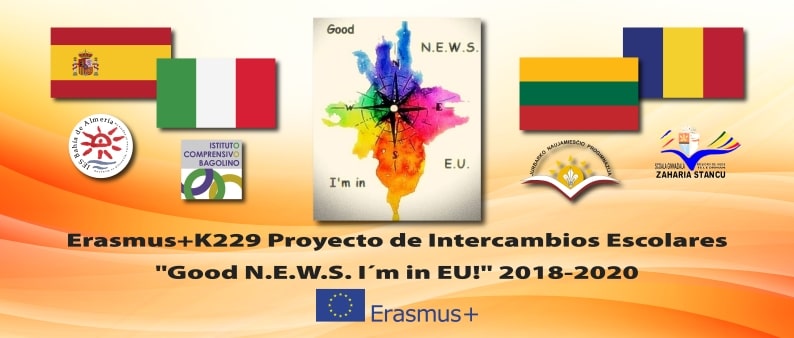
Good N.E.W.S! I´m in EU!
Es el nombre del proyecto Erasmus+KA229, de asociaciones escolares del que el IES Bahía de Almería forma parte como socio a partir del presente curso 2018-19; hasta el siguiente 2019-20. Los otros socios del proyecto son Centros escolares de los cuatro puntos cardinales de Europa: North: Lituania; West: España; South: Italia (Sicilia-coordinadora) e East: Rumanía.
El proyecto tiene como actividad principal el impulso y realización por parte de los Centros asociados en esta "Asociación Escolar", de Actividades en el Medio Natural dentro del Currículo de la Educación Física y las Ciencias Naturales. Mas concretamente el diseño y práctica de Actividades de Orientación.
Otro objetivo común a los programas europeos es el desarrollo de la competencia lingüistica de los alumnos y alumnas y de los profesores. El idioma de trabajo del proyecto es el inglés. En él participarán alumnado de primer curso bilingüe de la ESO del IES Bahía de Almería, realizando las actividades del proyecto, que tendrán como fechas clave la acogida de 20 alumnos y alumnas italianos en familias españolas en el mes de Abril de este curso, y finalmente la acogida por parte de familias italianas de 20 alumnos y alumnas españoles en el mes de junio del curso que viene.
Se prevé realizar un total de 5 movilidades de personal y alumnos a los distintos países participantes.
Todas las actividades en los 4 centros serán subidas y compartidas para realizar un producto y evaluación final del proyecto, en la plataforma y compartidas, para su exhibición y consulta, por parte de la comunidad educativa de los cuatro centros.
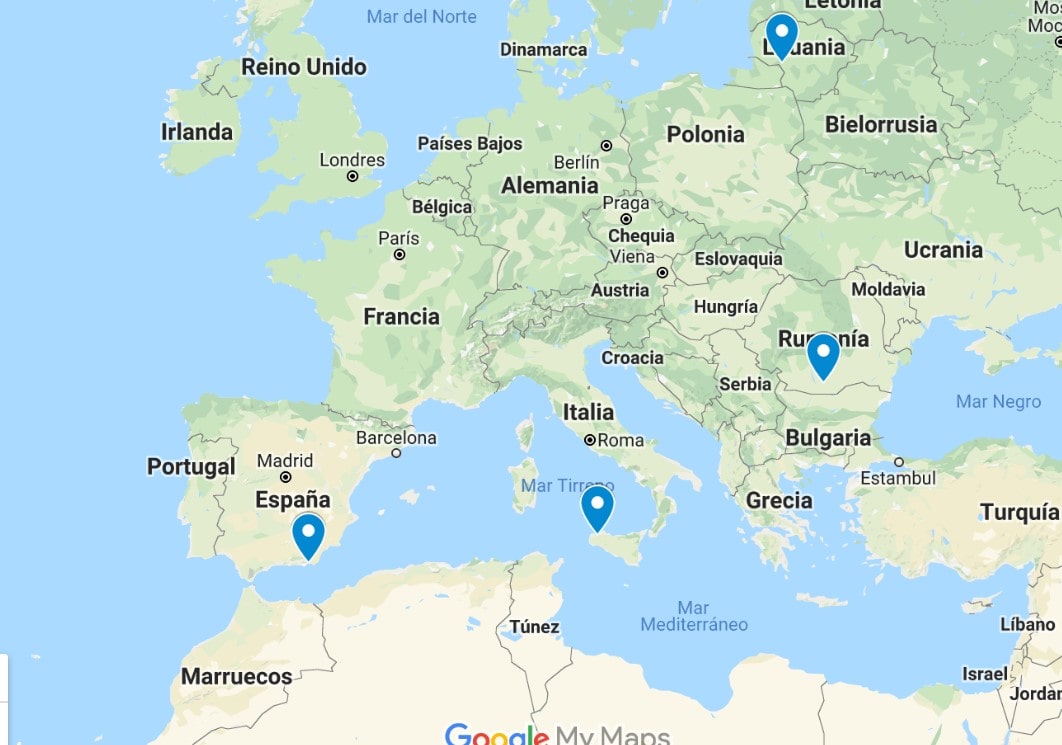
So, very welcome to IES Bahía de Almería, EU!!
Fases del Proyecto
El proyecto se desarrollará en tres fases:
- Good N.E.W.S! Let´s Start!: Tendrá lugar durante el primer trimestre del curso 2018-19 e incluye la información a la comunidad educativa, y local, la puesta en marcha de la plataforma eTwinning, concurso de Logos, elaboración de presentaciones en formato multiplataforma de los países por parte de los alumnos y alumnas, presentación de los socios...
- Orienteering: preparación y realización de los intercambios en los diferentes países, realizando en todos ellos actividades de acogida, presentación, visitas al patrimonio y cultura, y actividades de orientación al aire libre en parques o lugares singulares de la zona.
- I´m in EU!: finalmente, tratar de reflexionar sobre el papel de la ciudadanía europea con sus retos presentes y futuros, llevando a cabo trabajos prácticos de creación, lemas, poesías, vídeos...
Concurso de Diseño Gráfico
El IES Bahía de Almería convoca el concurso para la creación y diseño de un logotipo que será la imagen representativa del Proyecto Erasmus+ KA229. El objetivo principal del concurso será la difusión, participación e implicación de toda la comunidad educativa, alumnos y familias, en este proyecto del centro IES Bahía de Almería.

Revista Digital
Buscar
Espacio cardio protegido
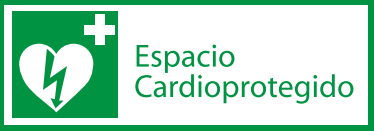
Planes y Proyectos
- Transformación Digital Educativa
- Plan de Igualdad entre hombres y mujeres en la educación
- Plan de Salud Laboral y P.R.L.
- Programa de centro BILINGÜE
- Proyecto lector y uso de biblioteca escolar
- Prácticas CC.E. y Psicología
- Prácticum Máster Secundaria
- Prácticum Grado Maestro
- Red Andaluza Escuela: "Espacio de Paz"
- PREVENCIÓN de la Violencia de Género en el ámbito educativo
- Proyecto de innovación/investigación en colaboración con univ. andaluzas
- Prácticas de alumnado universitarios en centros bilingües
- PROA (Andalucía)
- Programa IMPULSA (Innovación Educativa)
Planes y Proyectos (no vigentes)
- ALDEA B, Educación ambiental para la sostenibilidad
- Forma joven en el ámbito educativo
- INNICIA. Cultura Emprendedora
- Rutas científicas, artísticas y literarias
- Proyecto STEAM: Robótica aplicada al aula
- Proyecto STEAM: Pensamiento Computacional aplicado al aula
- PROEDUCAR (Actualízate e Ilusiónate)
- PROEDUCAR (Emociónate)
- Vivir y sentir el Patrimonio
- Andalucía Profundiza
- Proyecto STEAM: Investigación Aeroespacial aplicada al aula
Webs y Blogs del Centro
Revistas del Centro
En linea
Hay 25 invitados y ningún miembro en línea
Visitas
Directorio de teléfonos
IES Bahía de Almería
Luis Vives, s/n 04006 Almería
Teléfono: 950 156 275 (771275)
![]()
Fax: 950 153 482 (776482)
- Admininistración: 671 560 652 (760652)
- Dirección: 671 560 657 (760657)
- Secretaría: 671 560 653 (760653)
- Jefatura de Estudios: 671 560 665 (760665)
- Orientación: 671 560 664 (760664)
